THE CITY OF DREADFUL JOY, Weimar Berlin, 1928
Below is a quick tutorial about Germany’s notorious Weimar Republic. It was copied from a Twitter thread, located here. After the Twitter thread, I have included a section from the book “Goebbels and the Jews” which provides more details about the history leading up to the Weimar Republic, including the jewish attempt to violently overthrow Germany shortly after the 1917 “Bolshevik” takeover of Russia. As you are reading through this post, see if you can detect any similarities between what happened in Germany’s Weimar Republic and what is happening in Western countries today. We have many of the same types of problems, and the same group of people causing the problems now. These people have been subverting countries for centuries, for power and control.
Related: The Jewish Moral Corruption of Germany and America
Related: What the Jews Did to Germany Before Hitler Came to Power – The Sexual Decadence of Weimar Germany
General Patton did not like the jews, he made no secret about this, and he died under extremely suspicious circumstances in December 1945 while still in Germany.
Twitter/X post about the Weimar Republic:
In America, the public is given zero information on the "Weimar Republic," the period in Germany post-WWI that led to the rise of the National Socialists in 1933. This is deliberate. The period holds too many secrets to the modern world. This thread will expose those secrets.
First, a tweet on what Germany was pre-Weimar: As the Holy Roman Empire ended, Germans united throughout the 18th & 19th centuries under strong leadership, loyal monarchs, and good governance. Germany was a bustling European center of industry, military, culture & Christianity.
Then World War I happened. Largely orchestrated by corrupt Global interests, it was a disaster for Germany. Germany had a string of victories, and sought a peaceful truce. But Global financiers behind the war would lose money & their agenda, so they brought in America in 1917.
How the war ended is crucial to setting the stage for Weimar. The German war effort collapsed in 1918 when Communists led strikes in munitions factories and launched a violent Revolution in Germany. The monarchy fell, the war ended with no truce, & Liberal Elites create Weimar.
Before I get into who comprised this new "Liberal Elite" in Germany, first, a look at who was behind the Revolution:
Rosa Luxemburg
Kurt Eisner
Paul Levi
Leo Jogiches
Ernst Toller
Erich Muhsam
Gustav Landauer
Eugen Levine
Karl Radek
Guess what they all have in common...
At the Treaty of Versailles, a crippled Germany was carved up by the Global Elite, with no opposition from the new Weimar leaders. Who were the key representatives letting this happen? Paul Hirsch (Prime Minister of Prussia) Otto Landsberg (Versailles Delegate) And they were?
The term "Weimar" comes from the city of Weimar where this new, liberal democratic government was first assembled. In this unnatural, fragmented Germany, a new constitution was foisted on the people. Who wrote it? Hugo Preuss. What was he?
For nearly a decade, this government was overwhelmingly run by Left, Liberal, non-German influences. Walther Rathenau (Foreign Minister) Rudolf Hilferding (Finance Minister) Bernhard Isidor Weiss (Police Chief) Eduard Bernstein (main member of Social Democrats)
For the 70-80 years leading up to Weimar, Left-Liberal socialists had been wreaking havoc across Germany, preventing the people from knowing real peace. Who were the earliest leaders? Ferdinand Lassalle and Leopold Sonnemann. Guess what they were...
The early years of Weimar were filled with turmoil and suffering. The people weren't organized. The extreme Left launched frequent rebellions. There were food shortages & poverty. France invaded Germany in 1923-1925 to collect WWI reparations. It was an absolute mess.
The ineffectual government was often embroiled in scandal, with one group at the center.
Barmat Scandal
Sklarek Scandal
Kutisker Case
Katzenellenbogen Case
All involved J👀wish crime rings scamming Germany with political corruption, bribery, fraud, war-profiteering, etc.
Accompanying Weimar's broken political world was an equally sick and degenerate culture and society. EVERYTHING was tolerated. Berlin became the sin capital of the world. Many poor, desperate Germans sold themselves like cheap goods. No sexual perversion was off the table.
At the center of this sexual "revolution" was Magnus Hirschfeld. He created the "Institute of Sexual Research," located in Berlin, celebrating all kinds of sexual fetishes, conducting trans-surgery, research, etc. Sound familiar? It's all happened before, in Weimar Germany.
The "German" Film Industry was also filled with degenerate themes. Some of main producers, directors, & actors in Weimar:
Paul Davidson
Joseph "Joe May" Mandel
Jules Greenbaum
Max Reinhardt
Josef Von Sternberg
Fritz Kohn
Otto Wallburg
Peter "Lorre" Lowenstein
And many more...
The Pornography business also became extremely popular and lucrative during Weimar, often taking advantage of German women looking for work. People like Kurt Tucholsky made sure everyone got their fix.
Art in Weimar experienced a similar descent into meaningless, perverse works that inspired nothing but sadness and discord. "Dadaism" & "Cubism" were all the rage. The Elites promoted this as "intellectual" and modern. Sound familiar? Painters like Hanns Ludwig Katz did well.
Even prominent photographers, like Erwin Blumenfeld, sought to inject subversive, anti-German themes into their work. Here's one of his photos. Can you see what he was selling, even all the way back then? Something similar to what they're selling today.
The German Media, much like today, collaborated with the political & social Elite, ignoring the plights of everyday Germans and the complete degradation of German culture. Who ran the major newspapers & publishers in Weimar? No Germans.
Theodor Wolff
Georg Bernhard
Rudolf Mosse
Weimar hit rock bottom when the US stock market crashed & the global Great Depression followed. The degenerate society was wholly unprepared. Unemployment, starvation, disease, currency collapse. Stacks of German money were often worthless. The Weimar nightmare was complete.
Throughout Weimar, Europe learned of the horrors of Bolshevism to the East.
Yet, Communists paraded openly in Weimar, with official parties in the Govt (led by Werner Scholem).
The Weimar Elite seemed unable & uninterested in protecting Germans from their revolutionary cousins.
End of Tweet scroll
Excerpt from the book Goebbels on the Jews, by Thomas Dalton, PhD:
THE FIRST WORLD WAR
By the turn of the 20th century, Germans had had centuries of experience with the Hebrews, and much of it was negative. Jews had immense financial clout which seemed to derive from ‘nothing’—in truth, from interest-bearing loans. They were also shrewd and ruthless businessmen and traders, never missing a chance to turn a profit, even at the expense of the average German. Jews used their wealth to curry favor with nobles and royalty—typically in the form of more loans—but they had no direct political power, given that Germany and many other European nations were still functional monarchies or empires.
In Germany, the great leader Otto von Bismarck had unified the various German states, but by 1888 he was compelled to cede power to the young Kaiser Wilhelm II. This event in itself was problematic for the German Jews. They had received reasonably benign treatment under Bismarck, but Wilhelm was another story altogether. His personal dislike of the Hebrews was intense and public—and evidently well-grounded. According to Lamar Cecil, Wilhelm “believed that Jews were perversely responsible… for encouraging opposition to his rule.” In a letter to a friend, the Kaiser wrote: “The Hebrew race are my most inveterate enemies at home and abroad; they remain what they are and always were: the forgers of lies and the masterminds governing unrest, revolution, upheaval by spreading infamy with the help of their poisoned, caustic, satyric spirit.” Susan Townley relates this comment of his:
The Jews are the curse of my country. They keep my people poor and in their clutches. In every small village in Germany sits a dirty Jew, like a spider drawing the people into the web of usury. He lends money to the small farmers on the security of their land, and so gradually acquires control of everything. The Jews are the parasites of my Empire.
Wilhelm adds that the Jewish Question is one of his “great problems,” but one in which “nothing can be done to cope with it.” In 1940, with Hitler finally moving to clean up Europe, he said this: “The Jews are being thrust out of the nefarious positions in all countries, whom they have driven to hostility for centuries.”
Unhappy with this development in Germany and dissatisfied with indirect political influence elsewhere, some Jews began to agitate for the formation of a dedicated Jewish state. This new movement, called Zionism, officially formed in 1897 and immediately pressed for the creation of a Jewish state in Palestine. But this was a problem because, first, the land was occupied by a large number of indigenous Arabs (Muslim and Christian), and second, it was controlled by the Ottoman Turks, who would be highly unsympathetic to any such proposal in their own territory. Early Zionist leaders like Theodor Herzl and Max Nordau had a seemingly impossible task on their hands. They immediately understood that only a major international upheaval—something approaching a world war—could realign Middle Eastern power structures to their favor. Hence, they began to work with their fellow Jews in the affected nations, in order to promote unrest and revolution—yet more “ferment of decomposition,” in the words of Mommsen.
Turkey was in fact an early success for the Zionists. Turkish Jews and an allied group of crypto-Jews known as the Dönmeh worked with disaffected Turks to overthrow Sultan Abdul Hamid II in 1908, severely weakening the Ottoman Empire. This so-called Young Turk Revolution succeeded in reinstating a constitutional form of quasi-democracy but didn’t achieve the ultimate goal of a collapse of the Empire; that outcome would have to wait a few more years, for the First World War.
Meanwhile in the United States, a new figure was rising on the political scene, a man who would go on to win the presidency in 1912: Woodrow Wilson. He was significant, if for no other reason, as the first president to have the full and unconditional backing of the American Jewish Lobby. Speaking bluntly, Henry Ford said “Mr. Wilson, while president, was very close to the Jews. His administration, as everyone knows, was predominantly Jewish”. John Cooper remarks that Wilson’s “big contributors” included the likes of “Henry Morgenthau, Jacob Schiff, and Samuel Untermyer, as well as a newcomer to their ranks, Bernard Baruch.” Other vital support came from Paul Warburg (appointed by Wilson to the first Federal Reserve Board of Governors) and Louis Brandeis (nominated by Wilson for the Supreme Court). All these men were Jews.
Not coincidentally, all were also pushing Wilson to enter the war on the side of the UK and Russia, against Germany. American public opinion, however, was strongly opposed to war; most saw it as an internal European conflict in a faraway place, unworthy of expending US lives. And in fact Wilson ran again in 1916, and won, on an explicitly anti-war platform. But then, strangely, just one month after his second inauguration, he reversed course and, on 2 April 1917, issued a call for the US to enter the war. Historians debate his rationale, but two reasons seem clear: money and ideology. As always, wars present opportunities for huge profits, especially for the ruthless and the exploitative. One senator, George Norris, said it best: “We are going into war upon command of gold.” Ideologically, Wilson’s Jewish backers wanted nothing more than to see the hated Kaiser Wilhelm go under, and for Jews to be given a free hand in Germany. As it happens, that’s exactly what they got.
The Rise of Bolshevism
World War One was triggered by the assassination of Archduke Franz Ferdinand on 28 July 1914. This set off a series of interlocking alliance commitments that ultimately pitted Germany, Austro-Hungary and the Ottoman Empire against an array of nations known as the Allied Powers—most notably, England, France, Russia, Italy and eventually the USA.
Significantly, Jews were active in many of these nations, and almost uniformly pressing for war. The Jewish presence in the US, and their hatred of the Kaiser, were two pieces of the puzzle. Through Nordau and others, the Zionists were active in France. In the UK, leading figures like David Lloyd George and Winston Churchill were highly sympathetic to the Zionist cause, and thus allowed themselves to be swayed by their Jewish backers. The prewar Prime Minister, H. H. Asquith, who held power from 1908 to late 1916, was evidently no friend of the Zionists, but as he slipped from power, Zionist proxies moved into place. Lloyd George was, from their standpoint, a nearly ideal leader, and had been working closely with them since at least 1903. Ideologically, he was a Christian Zionist and thus predisposed to be sympathetic to the Jewish cause. Immediately upon assuming power in December 1916, with the war well underway—and looking rather dim, from the British perspective—he instructed his staff to begin negotiating with the Jews for their support and assistance abroad. As Margaret MacMillan explains:
From [early] 1917, with Lloyd George’s encouragement, [Mark] Sykes met privately with [Chaim] Weizmann and other Zionists. The final, and perhaps most important, factor in swinging British support behind the Zionists was to make propaganda among Jews, particularly in the United States, which had not yet come into the war, and in Russia…
These negotiations would culminate in the infamous Balfour Declaration of November 1917, in which the UK promised to support a “national home for the Jewish people in Palestine,” in exchange for Jewish assistance in the US and Russia. Lloyd George was later quoted on precisely this point:
The Zionist leaders gave us a definite promise that, if the Allies committed themselves to… a national home for the Jews in Palestine, they would do their best to rally Jewish sentiment and support throughout the world to the Allied cause. They kept their word.
For his part, Churchill was equally in thrall to the Zionists. In a 1942 letter to President Franklin Roosevelt, he said, “I am strongly wedded to the Zionist policy [in the UK], of which I was one of the authors.” Speaking in 1950 on behalf of the creation of Israel, he called it “a great event in the history of mankind,” and said that he was “proud of his own contribution towards it”—adding that “he had been a Zionist all his life.” No doubt, the Jews had another good friend in Churchill.
Meanwhile in Russia, things were getting complicated. There’s much more to the Jewish role in that nation, and the Russian Revolution, than I can examine here, so a brief recap will have to suffice. From the standpoint of World War One, Jewish influence stems from the roles of Marx (a German Jew) and Vladimir Lenin—a Russian who was himself one-quarter Jewish. In 1898, Lenin formed a revolutionary group, the Russian Social Democratic Worker’s Party, which was the early precursor to the Soviet Communist Party. Four years later, he was joined by a full-blooded Jew, Leon Trotsky (born Lev Bronstein). Internal dissention led to a schism in 1903, at which time the Party split into Bolshevik (‘majority’) and Menshevik (‘minority’) factions. Both groups were disproportionately Jewish, but the more violent and extreme Bolsheviks would go on to dominate the scene.
In addition to Lenin and Trotsky, leading Bolshevik Jews included Grigory Zinoviev, Yakov Sverdlov, Lev Kamenev, Karl Radek, Leonid Krasin, Alexander Litvinov, Grigori Sokolnikov, Nikolay Krestinsky, Yakov Agranov, and (later) Lazar Kaganovich. These men and “others of Jewish origin… were prominent among the leaders of the Russian Bolshevik revolution,” wrote Hayim Ben-Sasson. This was public knowledge at the time, as the London Times reported:
One of the most curious features of the Bolshevist movement is the high percentage of non-Russian elements amongst its leaders. Of the 20 or 30 leaders who provide the central machinery of the Bolshevist movement, not less than 75 percent are Jews. … [T]he Jews provide the executive officers.
The article proceeds to list Trotsky and some 17 other individuals by name. Nora Levin notes that, at the 1907 Party Congress, there were nearly 100 Jewish delegates, comprising about one third of the total.
Thus it was that, in the years leading up to the war, Jews were working internally and externally to overthrow the Russian leader, Czar Nicholas II—which is to say, to cause a revolution. Leonard Stein quotes a Zionist memo of 1914, promoting “relations with the Jews in Eastern Europe and in America, so as to contribute to the overthrow of czarist Russia and to secure the national autonomy of the Jews.” Howard Temperley noted that, “by 1917, [Russian Jews] had done much in preparation for that general disintegration of Russian national life, later recognized as the revolution.” (Again we see the “ferment of decomposition” and the “plastic demons of decay.”) William Ziff stated the common view of the time that “Jewish influence in Russia was supposed to be considerable. Jews were playing a prominent part in the revolution… ”
In any case, the Jewish revolutionaries succeeded once again. They participated in the worker’s uprising in February 1917 that overthrew the czar, and then led the Bolshevik revolution in October that put them in control of a nation of some 130 million people. The Jewish Bolsheviks then immediately set out to take revenge on their enemies and anyone else who was a potential threat. In July 1918, a group of Jewish militants executed the czar, his wife, and his five children. Thereupon began a multi-year period of civil unrest in which an estimated 10 million Russians were killed—one of the great national massacres in history. Thus all the world, and the Nazis in particular, came to be acquainted with the evils of Judeo-Bolshevism.
Surprisingly, even Churchill acknowledged this fact. In 1920 he wrote an infamous essay, “Zionism versus Bolshevism,” explaining the difference between the “good” (Zionist) Jews and the “bad” (Bolshevik) Jews. This dichotomy, which was nothing less than a “struggle for the soul of the Jewish people,” made it appear almost “as if the gospel of Christ and the gospel of Antichrist were destined to originate among the same people.” The Zionists were “national” Jews who only sought a homeland for their beleaguered people. The evil “international Jews,” the Bolsheviks, sought revolution, chaos, and even world domination. It was, said Churchill, a “sinister conspiracy.” He continued:
This movement among the Jews is not new. From the days of Spartacus-Weishaupt to those of Karl Marx, and down to Trotsky (Russia), Bela Kun (Hungary), Rosa Luxemburg (Germany), and Emma Goldman (United States), this world-wide conspiracy for the overthrow of civilization and for the reconstitution of society on the basis of arrested development, of envious malevolence, and impossible equality, has been steadily growing. … It has been the mainspring of every subversive movement during the Nineteenth Century; and now at last this band of extraordinary personalities from the underworld of the great cities of Europe and America have gripped the Russian people by the hair of their heads and have become practically the undisputed masters of that enormous empire.
“There is no need to exaggerate” the Jewish role in the Russian revolution; “It is certainly a very great one. … [T]he majority of the leading figures are Jews.” In the Soviet institutions, “the predominance of Jews is even more astonishing.” But perhaps the worst aspect was the dominant role of Judeoterrorism. Churchill was clear and explicit:
[T]he prominent, if not indeed the principal, part in the system of terrorism applied by the Extraordinary Commissions for Combating Counter-Revolution has been taken by Jews, and in some notable cases by Jewesses. The same evil prominence was obtained by Jews in the brief period of terror during which Bela Kun ruled in Hungary. The same phenomenon has been presented in Germany (especially in Bavaria), so far as this madness has been allowed to prey upon the temporary prostration of the German people. … [T]he part played by the [Jews] in proportion to their numbers in the population is astonishing.
By this time, of course, Churchill was well in the pay of the British Zionists, and he had plenty of motivation to defend their public image.
From the German perspective, these were very mixed developments. It was good that Russia was out of the war, but bad that it had been overtaken by bloodthirsty Jewish Bolsheviks. The Brits and French were being outmaneuvered on the battlefield, but the presence of American troops beginning in July 1917 was bad news. But the worst was yet to come.
Emboldened by their success in Russia, Jews worldwide turned their attention to their next target. As soon as the czar fell in Russia, calls came out to repeat the success in Germany. On 19 March 1917, four days after the czar’s ouster, the New York Times reported on Louis Marshall, founder of the American Jewish Congress, lauding the event, adding that “the revolt against autocracy might be expected to spread to Germany.” Two days later, Jewish speakers at Madison Square Garden “predict[ed] an uprising in Germany.” As the article explains, “[some] predicted that the revolution of the working classes of Russia was the forerunner of similar revolutions the world over. That the next revolution would be in Germany was predicted by a number of the speakers” (March 21). On March 24, Jacob Schiff took credit for helping to finance the Russian Revolution. At the same time, Rabbi Stephen Wise put the blame for the pending American entry into World War I on “German militarism,” adding “I would to God it were possible for us to fight side by side with the German people for the overthrow of Hohenzollernism [i.e., Kaiser Wilhelm].” Strangely enough, Wise got his wish; just 18 months later, revolution would indeed strike Germany, throwing Wilhelm out of power and setting the stage for the Jewish-dominated Weimar Republic.
The first sign of trouble for the Germans came in July 1918. A Jewish radical named Yakov Blumkin entered the German embassy in Moscow and assassinated the German ambassador, Wilhelm von Mirbach. Upheaval in Germany itself began with a minor naval mutiny in late October and early November 1918, at the ports of Kiel and Wilhelmshaven. A number of sailors, workers, and Jews from the Independent Social Democratic Party (USPD) joined forces to conduct a nonviolent rebellion against the Kaiser. The German rebels simply wanted the war to end, whereas the Jewish rebels sought power; in this sense it was a natural alliance. The “rebellion”—primarily in the form of a general strike—quickly spread, reaching Munich within a matter of days. In an attempt to cut short this action, the majority Social Democrats (SPD) called on the Kaiser to abdicate, at which time they would form a republican government. On November 9, they prevailed; Wilhelm stepped down, and a new “German Republic” was proclaimed. It was this new leadership that signed the armistice agreement on November 11, ending the war. Thus, in the blink of an eye, World War One was over, and Germany lay “defeated.”
Related: The Allies
The USPD rebels then put their next phase into action. On the very same day that the German Republic was created, they declared the formation of a “Free Socialist Republic.” This group had an almost entirely Jewish leadership: Rosa Luxemburg, Hugo Haase, Karl Liebknecht (half-Jewish), Leo Jogiches, Karl Radek, and Alexander Parvus were the dominant figures. And these were just the activists centered in Berlin. In Munich, other Jewish rebels were conducting a separate, simultaneous revolution, aimed at creating a Bavarian communist state. The leading USPD revolutionary there was a Jewish journalist, Kurt Eisner. On November 7, he demanded the abdication of the local monarch, King Ludwig III. The king fled on the following day, and Eisner declared himself “minister-president” of a free Bavarian state.
Soon enough, though, Eisner’s luck ran out. On 21 February 1919 he was assassinated by a fellow Jew, Anton Arco-Valley. Within a few weeks, other USPD Jews regained power and established a Bavarian Soviet Republic—the third in Europe, behind Russia and Hungary. Its leader was the Jewish playwright Ernst Toller. Among his group were the noted Jewish anarchists Gustav Landauer and Erich Muehsam. Through sheer incompetency, Toller’s government managed to get usurped by yet another Jewish faction, one led by Eugen Levine and the half-Jew Otto Neurath. Levine attempted to institute a true communist system, including its own “Red Army” modeled on the Russians’. But once again, his success was short-lived. Remnants of the old German army quickly intervened, deposing the communists in early May.
Things did not end well for the Jewish rebels. Levine was captured and executed, as was Landauer. Toller, Muehsam, Radek, Parvus, and Neurath managed to escape. Luxemburg and Liebknecht were shot by German soldiers in January 1919, and Jogiches died under mysterious circumstances in March. Haase was killed by a deranged worker in November of that same year.
Related: The Starving of Germany in 1919
EXCERPT: I first read about the starvation of Germans at the end of WWI in a book written by British historian Clive Ponting, he reported that close to 900,000 Germans died of starvation in 1918 and 1919. The “starvation policy” had begun in 1914. Winston Churchill, then First Lord of the Admiralty and one of the framers of the scheme, admitted that it was aimed at “starving the whole population — men, women, and children, old and young, wounded and sound — into submission.”
…
The reason for the food blockade to be kept in place after the end of the hostilities was aimed at forcing Germany to sign the Versailles Treaty without any change on the strict conditions they were imposing. Today no one remembers it because it was kept secret and there were no leaks to the western press while 900,000 German men, women and children died because of the British naval blockade. Even today only a few non-Germans know the truth and American and British historians, seems to have brushed off this most appalling crime as a footnote in history.
The Paris Peace Conference and Treaty of Versailles
The German ‘revolution’ of November 1918 and subsequent abdication by Wilhelm II spelled the end for Germany. Having won the war, Wilson’s Jewish team was anxious to dictate the peace. “As it turned out,” remarks Shogan, “the war would bring benefits to the Zionist cause, in part because of Brandeis’s role as a trusted advisor [to Wilson].” The victorious nations convened in Paris in January 1919, and would negotiate for well more than a year before all treaties were resolved and signed. Notably, the American Jewish Congress was there as its own delegation, with Louis Marshall playing a prominent role. Shogan adds that “[Stephen] Wise was in Paris, on assignment from President Wilson to head the Zionist delegation to the peace talks.” (One might reasonably ask: Why do Zionists get their own delegation at all?) The Jewish aim was neither a just implementation of peace nor fair treatment of Germany, but rather to maximize benefit to the various Jewish communities of Europe and the US. “At the beginning of 1919,” says Ben-Sasson, “diplomatic activity in Paris became the main focus of the various attempts to fulfill Jewish aspirations.” Carole Fink concurs: “In March 1919, pro-Zionist and nationalist Jewish delegations arrived in Paris.” Nearly every victorious nation, it seems, had its own Jewish representatives. Some sought formal and explicit Jewish rights in their own nations, and others worked for recognition of a Jewish national state.
Writing during the event, Irish philosopher and journalist Emile Dillon saw it this way:
Of all the collectivities whose interests were furthered at the Conference, the Jews had perhaps the most resourceful and certainly the most influential exponents. There were Jews from Palestine, from Poland, Russia, the Ukraine, Rumania, Greece, Britain, Holland, and Belgium; but the largest and most brilliant contingent was sent by the United States.
Describing the American side, Fink explains that “the fervent Zionist Julius Mack and the more moderate Louis Marshall quickly overshadowed the leading American anti-nationalists, Henry Morgenthau, Oscar Straus, and Cyrus Adler.”
Though he was predisposed to be sympathetic to the Jewish plight, Dillon nonetheless noted that a “religious” or “racial” bias “lay at the root of Mr. Wilson’s policy.” It’s a fact, he said, “that a considerable number of delegates believed that the real influences behind the Anglo-Saxon peoples were Semitic.” Summarizing prospects for the future, he remarked on the general conclusion by many at Paris: “Henceforth the world will be governed by the Anglo-Saxon peoples, who, in turn, are swayed by their Jewish elements.” A fateful observation indeed.
Treatment of the Germans at the conference, as is well known, was brutally harsh. They expected, and were promised, that it would be a fair settlement of the legitimate war claims of all belligerents—particularly given the complex and convoluted nature of the outbreak of hostilities. But by the time of the peace conference, Wilson and his team had decided that Germany alone was responsible for the war, and thus had to bear the full burden of reparations. The impossible conditions forced upon them set the stage for the rise of National Socialism and the next great war.
All in all, what emerges from the first war and the peace conference is a picture of British and American supplication to Jewish interests. Indeed, the prime beneficiaries of the war were Jews, both in America and in Europe generally. For Germany, it was obviously a disastrous event; it suffered some 2 million military deaths along with thousands of indirect civilian losses, crushing financial debts, and witnessed the end of the 900-year reign of the House of Hohenzollern. This was a tragedy for a nation that, according to Sidney Fay, “did not plot a European war, did not want one, and made genuine… efforts to avert one.”
One of the few to see the prominent Jewish hand in the war was Henry Ford. He gave a fascinating postwar interview to the New York Times, explaining how he came to this realization: “It was the Jews themselves that convinced me of the direct relation between the international Jew and war.”
He continues:
[They explained to me] the means by which the Jew controlled the war, how they had the money, how they had cornered all the basic materials needed to fight the war… They said… that the Jews had started the war; that they would continue it as long as they wished, and that until the Jew stopped the war, it could not be stopped. (New York Times, 5 December 1921, p. 33)
All in all, a striking confession.
The Jewish Weimar
The Treaty of Versailles was signed in June 1919, much to Jewish satisfaction and German chagrin. The initial Jewish revolutionaries had been defeated by this time, but it was far from the end of their influence in Germany. The USPD was reconstituted as the German Communist Party (KPD), under the leadership of Paul Levi. The ruling SPD had meanwhile joined forces with the moderate German Democratic Party (DDP), convening in January 1919 in the city of Weimar to create a constitutional form of government. Jews were front and center in both of these parties: Otto Landesberg, Eduard Bernstein, and Rudolf Hilferding in the SPD, and Walter Rathenau in the DDP; Rathenau was eventually named as German Foreign Minister. His Jewish colleague, Hugo Preuss, wrote the Weimar constitution. Even some of the native German politicians had Semitic connections; one-time Prime Minister Gustav Stresemann’s wife, Käte Kleefeld, was Jewish.
This extensive Jewish influence was well described by a philo-Semitic an Pulitzer-Prize winning American journalist, Edgar Mowrer. Writing in 1933, he noted that
a large number of Jews entered the Social Democratic Party [SPD] which inherited power as a result of the [November] Revolution. Other Jews flocked to the Democratic Party [DDP], a group which certainly overlooked no chance to favor the interests of trade, banking and the stock exchange…
It’s interesting that then, as now, Jews seem to have covered all the bases: liberal, left-wing Jews dominated the SPD, and capitalist, right-wing Jews dominated the DDP. Thus, no matter which party emerged with control, Jews retained influence. Success, for them, was guaranteed. Mowrer elaborates:
In post-war politics any number of Jews rose to leadership. Both in the Reich and in the Federal States, Jews, particularly Social Democrats, became Cabinet Ministers. In the bureaucracy, the Jews rose rapidly to leading positions, and until about 1930 their number seemed on the increase. … In short, after the Revolution, the Jews came in Germany to play in politics and administration that same considerable part that they had previously won by open competition in business, trade, banking, the press, the arts, the sciences, and the intellectual and cultural life of the country.
The new Weimar Republic was duly signed into law in August 1919. Unsurprisingly, it was notably friendly to German Jews, removing all remnants of legal obstructions, and granting them full access to business, academia, and government—the very process that Mowrer described. As Hagit Lavsky says, “All remaining discrimination was abolished and there were no restrictions on participation in German public life.” The vital role played by Weimar Jews is concisely explained by Walter Laqueur:
Without the Jews there would have been no ‘Weimar culture’—to this extent the claims of the antisemites, who detested that culture, were justified. They were in the forefront of every new daring, revolutionary movement. They were prominent among Expressionist poets, among the novelists of the 1920s, among the theatrical producers and, for a while, among the leading figures of the cinema. They owned the leading liberal newspapers such as the Berliner Tageblatt, the Vossische Zeitung and the Frankfurter Zeitung, and many editors were Jews too. Many leading liberal and avant-garde publishing houses were in Jewish hands (S. Fischer, Kurt Wolff, the Cassirers, Georg Bondi, Erich Reiss, the Malik Verlag). Many leading theatre critics were Jews, and they dominated light entertainment.
Laqueur, however, neglects to explain that the celebrated “Weimar culture” was perhaps best known for its licentiousness, promiscuity, and general moral depravity. “They established themselves in the universities, civil service, law, business, banking, and the free professions,” adds Lavsky. “Certain spheres were virtually monopolized by the Jews, and their contribution to journalism, literature, theater, music, the plastic arts, and entertainment was considerable.”
It was this very centrality of Jews to social upheaval, the November Revolution, and the new Weimar Republic that led three German activists and intellectuals—Anton Drexler, Gottfried Feder, and Dietrich Eckart—to found the Deutsche Arbeiterpartei (DAP). This would be the forerunner to the National Socialist DAP (NSDAP), or Nazi Party. One of their first recruits was a distraught 30-year-old former soldier, Adolf Hitler.
In Mein Kampf, Hitler describes in painful, personal detail how the young German men went to fight and die on the front lines, even as the Jewish activists and rebels undermined the imperial government back home. Calling them “hoary criminals,” he adds that, all the while, “these perjured criminals were organizing a revolution.” Upon a medical leave from the front in October 1916, he describes the situation in Munich:
Anger, discontent, complaints—wherever one went! … Government offices were filled with Jews. Almost every clerk was a Jew, and nearly every Jew was a clerk. … In the business world, the situation was even worse. Here the Jewish people had actually become ‘indispensable.’ Like spiders, they were slowly sucking the blood from the pores of the national body. … Thus as early as 1916-17, practically all production was under the control of Jewish finance.
Hitler returned to the front in March 1917 and was struck by a mustard-gas attack in October of the following year. The gas severely burned his eyes, sending him to a military hospital for recovery. It was there that he first heard about the Revolution. The Jewish-Marxist “gang of despicable and depraved criminals” had led the overthrow of the Kaiser and were attempting to take direct power themselves. Their revolts would be transitory, but the Jewish influenced Weimar regime would soon take control of the nation, and this was scarcely any better. It was precisely these events that led Hitler—and Goebbels—to become politically active.
Related:
The Jewish Supremacist Way of War
I was thinking of writing a post detailing how Jewish supremacists are waging war on the rest of humanity. Then I saw a related comment on a Unz Review essay and decided to post it. Why reinvent the wheel?
EXCERPT: The Jews want to enslave and/or exterminate all of mankind apart from themselves. This is obvious once you begin to look into the matter.
Let’s pretend we are Jews and are laying out our plans to accomplish this task as quickly and efficiently as possible. What would be required?
1. Infiltrate the goyim nations, especially the richest and most powerful ones.
2. Act in such a way as to be thought indistinguishable — with few exceptions — from the dominant group.
3. Work as a team across international borders to acquire a large percentage of the world’s wealth.
4. Use that wealth to ingratiate ourselves to — and corrupt — the leaders of the host nations.
5. Concentrate on gaining disproportionate control of the levers of power and influence by becoming lawyers, doctors, bankers, college professors, philanthropists, journalists and high-level government bureaucrats.
6. Use our power and influence to destroy the strength and solidarity of the host population.
7. Promote dysgenic policies to reduce the host population’s growth: birth control, abortion, sexual deviancy, divorce and breakup of the family, feminism, the state intervening in child raising, failure to punish crime, etc. Use any plausible excuse to get the host population to have fewer babies (e.g., “climate change”; “overpopulation”).
8. Demoralize the host population by promoting degeneracy and antisocial behavior. Art should become ugly. Music unlistenable. Literature gibberish. Replace serious books with garbage. Transform schools from intellectual establishments into social indoctrination centers. Have the schools usurp the authority of parents.
9. Undermine the religion of the host population. Drive it out of the public square. Mock it. Ridicule it. Promote atheism. Deny the transcendent and promote relative value.
10. Seek to disarm the population.
11. Impoverish the population through usury, market rigging, Ponzi schemes and by inflating the currency.
12. Replace a sufficient number of the host population such that there is no dominant group with which the nation identifies itself. Encourage rivalries and resentments between the different groups.
13. Turn the health industry into a disease and death industry.
14. Deindustrialize the host nation, making it dependent on other nations.
15. Promote the nation spending itself into bankruptcy.
16. Promote endless war, both to obtain profit and to reduce the goyim population.
17. Clothe the above activities as liberalism, open-mindedness, science and rationality.
18. What purports to be democracy that serves the interests and well-being of the population will in fact be an oligarchy where power and money are concentrated in our hands.
19. Promote globalism and one-world government and discourage national self-determination.
20. Smear opponents and, if necessary, assassinate them.
21. Make the words “Jew” and “Jews” unmentionable except in the most laudatory sense.
22. Have a fortress nation of our own to retreat to in case of trouble.
Why would it be difficult to believe that this is going on? Not because it is obscure and complicated, but rather because it is so crude and simple. One small group can only feel comfortable if all other people are killed or enslaved.
It seems preposterous that they think they could accomplish this. It is appalling that they would want to carry it out. But they are accomplishing it. And they are that appalling.
Weimar Republic 2.0, today:
EXCERPT: Hirschfeld’s institute was a monument to moral sickness and represented everything the NSDAP stood against. In May 1933, the Deutsche Studentenschaft (German Students Union) stormed this den of debauchery shouting Brenne Hirschfeld (Burn Hirschfeld) and began beating the staff and smashing the premises. The Institute was permanently closed and its extensive lists of names and addresses were seized.
A few days later the entire library was famously burned in the streets, some 20,000 books and images, along with Marxist literature and other subversive material. Ever since, without background or explanation, corporate media and palace publishers have protested against the German students emptying their swamp.
Weimar Germany can be seen as a trial run or dress rehearsal for the Sexual Revolution of the 1960s, a revolution in attitudes and behavior that was to convulse America and then spread like a moral virus to Europe and the rest of the world.
The Germans were to be the initial guinea pigs of these Cultural Marxists, all of them initially Jewish apart from Habermas. These were revolutionaries intent on complete social control by the imposition of their Marxist worldview on the rest of society. It is self-evident that there is no other way to get control of a society with strong moral values than to weaken those values. The formula is simple: destroy the belief system on which that society is founded, especially its religion and its traditional codes of honor and decency. Promote godlessness and a philosophy of despair. To put it in even plainer language: reduce men to beasts if you wish to control them.
It was George Lukács, one of the founding fathers of the Frankfurt School, who had called for “a culture of pessimism and a world abandoned by God.” And it was one of their most fanatical ideologues, Willi Munzenberg, who had said he wanted to turn the world upside down and make life a hell on earth. His exact words:
“We must organize the intellectuals and use them TO MAKE WESTERN CIVILIZATION STINK! Only then, after they have CORRUPTED ALL ITS VALUES AND MADE LIFE IMPOSSIBLE, can we impose the dictatorship of the proletariat. “
In America the Cultural Marxists applied a variation of their Weimar techniques, but refined and honed to a high degree. This time, they’ve used multiculturalism as a weapon of mass destruction in addition to moral corruption. They’ve flooded the country with immigrants, legal as well as illegal. They’ve turned race against race (engineered ethnic conflict), parent against child (attack on authority), and man against woman (radical feminism). Above all, they’ve taught the non-White races to regard the White race as the ultimate evil: “the cancer of human history”, to quote Jewish feminist Susan Sontag.
What did the cultural Marxists learn from Weimar Germany?
They learned that the Sexual Revolution, in order to succeed, had to be a slow and gradual process. “Modern forms of subjection,” the Frankfurt School had learned, “are marked by mildness.” Weimar had failed because the pace had been too frenetic. People were aware they were being corrupted. That was fatal.
To corrupt a nation effectively one must make sure that the descent into degradation is an infinitely slow and imperceptible process, one miniscule step at a time—just as those who wish to cook frogs alive in a saucepan, reducing them to a state of comatose stupor, are advised to place them in cold water and boil them to death as slowly as possible.
And there’s no better way to effectively manage the descent into perversion than to initially use comedy to begin the normalization process.
Following are several excellent examples of this approach:
Some Like It Hot - Boy Oh Boy Am I a Boy
Woody Allen - The Sheep
Dr Manfred Reifer, a respected Jewish authority on the Weimar era, writing in a prestigious Jewish publication:
“Whilst large sections of the German nation were struggling for the preservation of their race, we Jews filled the streets of Germany with our vociferations. We supplied the press with articles on the subject of its Christmas and Easter and administered to its religious beliefs in the manner we considered suitable. We ridiculed the highest ideals of the German nation and profaned the matters which it holds sacred.” — Dr Manfred Reifer, in the German Jewish magazine Czernowitzer Allegemeine Zeitung, September 1933
In the same month those words were written, September 1933, Adolf Hitler removed every single Jew from positions of influence in the mass media: from the fields of literature, art, music, journalism, the cinema, and popular entertainment in general. The influence that the Jews had exerted on the German psyche was to be regarded henceforth, rightly or wrongly, as pernicious. And Kulturbolschewismus, or “Bolshevik culture”, a derogatory term for Jewish culture itself, became synonymous with moral anarchy and sexual decadence.
When Hitler became Chancellor in 1933, the first 2 laws he implemented directly affected the perverted blight that had destroyed German culture.
In the following video Rabbi Yaron Reuven discusses these laws:
Rabbi Explains Hitler's First Laws Affecting Jews
Weimar was the first oppressive neo-liberal democracy.
You’re never told about it because:
1. It ruins the WWII lies our governments tell us.
2. You’re in Weimar 2.0.
If you ever learn that, you may learn how to escape it. This scares the Elite.
RELATED INFORMATION:
The Real History of WWII?
The Jewish Hand in the World Wars
jews Created Communism
The Peculiar Morality of Jewdom
The Holocaust, at the Heart of the Gaza Genocide
The Holocaust
The Holocaust Hoax Meme Page
One Man’s Road to “Holocaust” Revisionism
The Holocaust Narrative and Deep State Control
The October 7, 2023 "Hamas" Attack was an Israeli False Flag Attack
Former Green Beret Talks About His Experiences in Israel. September 7th, 2024.
The State of Israel as "Cartoonishly Evil"?
Why are Israelis and Zionists so psychotic?
The jewish Supremacist Way of War
The jewish Supremacists' War on the White Population
Is this a jewish Supremacist War on the World?
The jewish War on the Gentiles
Terrorism: A jewish Tradition
The jewish Supremacists’ War on Humanity Meme Page 1
The jewish Supremacists’ War on Humanity Meme Page 2
The jewish Supremacists’ War on Humanity Meme Page 3
The jewish Supremacists' War on Humanity Meme Page 4
The jewish Supremacists' War on Humanity Meme Page 5
The jewish Supremacists' War on the World Meme Page 6
The Holocaust Hoax Meme Page
9/11 Memes
Jeff Berwick's commentary about jews
Some Commentary from Hervé Ryssen, author of "The Jewish Mafia"
The Red Terror, the Holodomor, and the "Globalists"
Israel and elements of the U.S. government did 9/11
A Discussion with Navy Veteran Phil Tourney about the USS Liberty Attack
jewish Supremacists Speak
jewish Supremacist Quotes
Short videos about jewish Power
Kim Dotcom and The Protocols of the Learned Elders of Zion
Ending Antisemitism
END

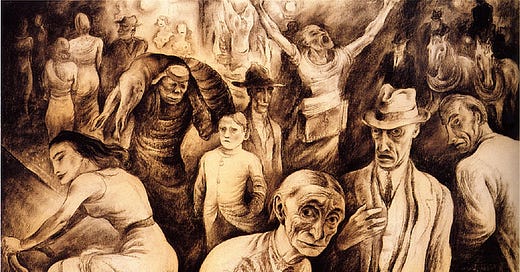






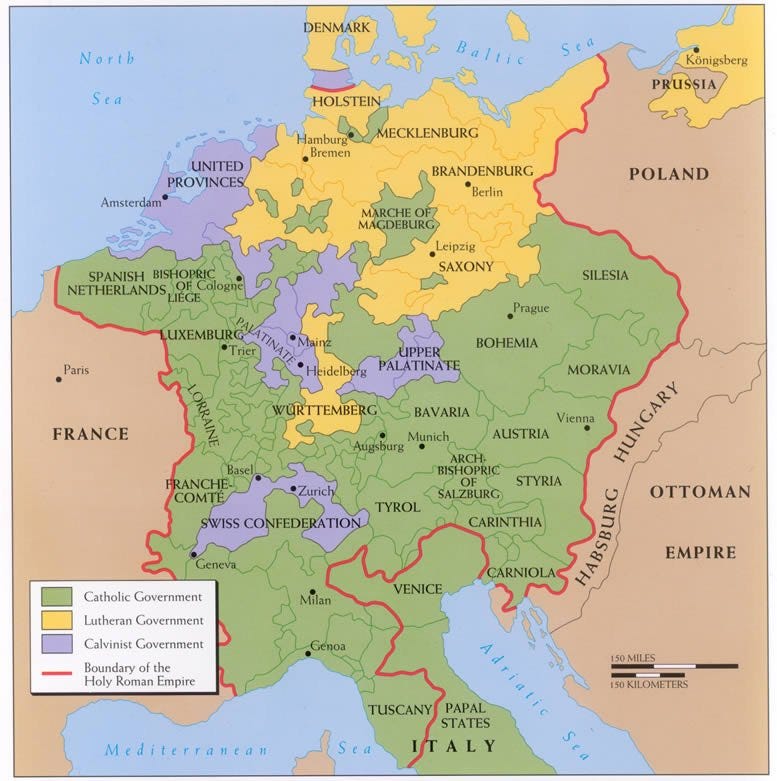
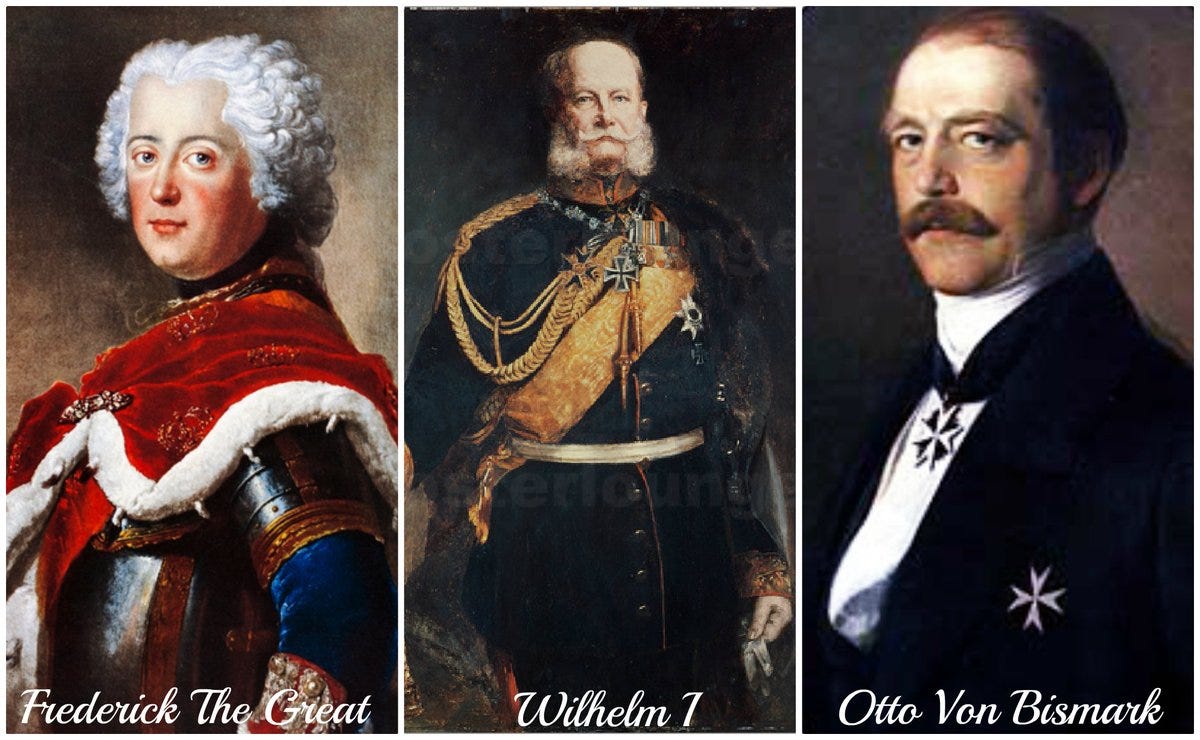
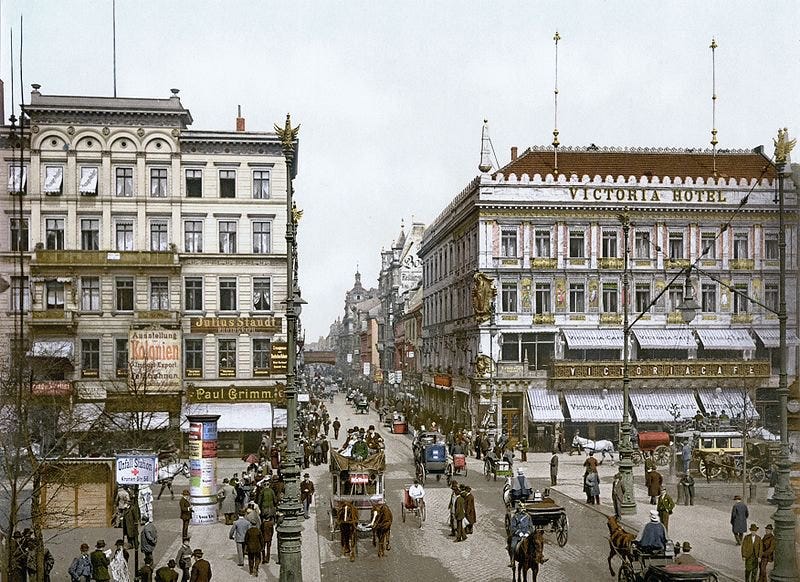

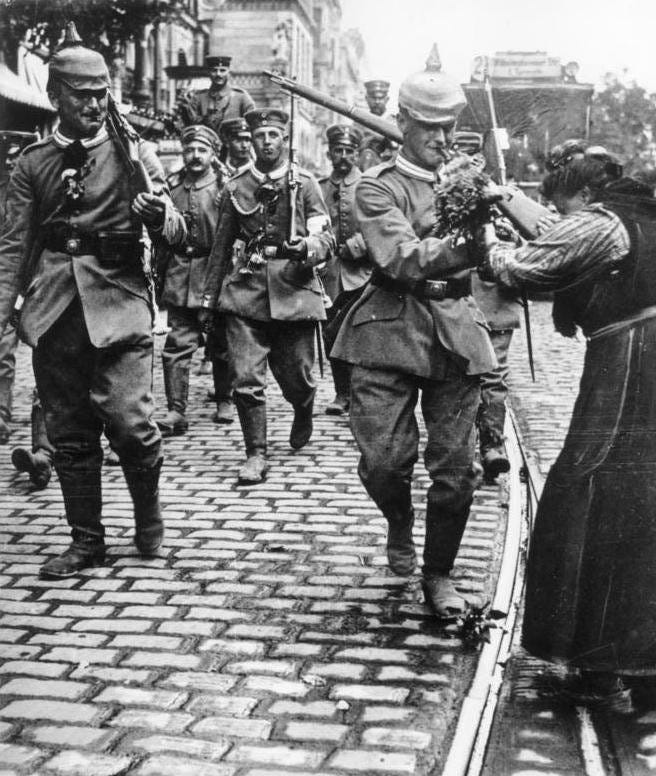

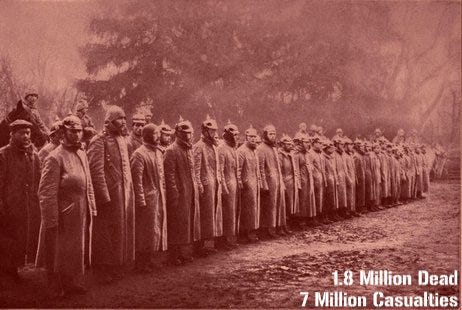





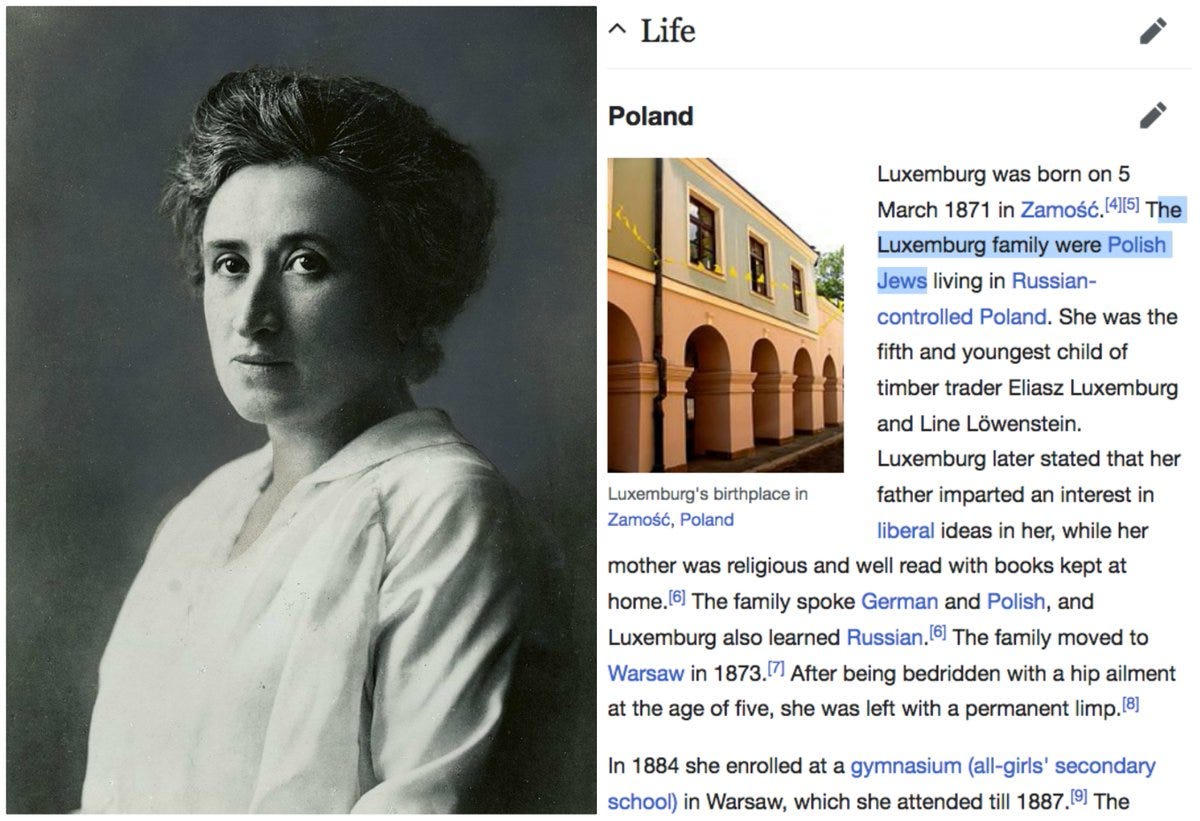


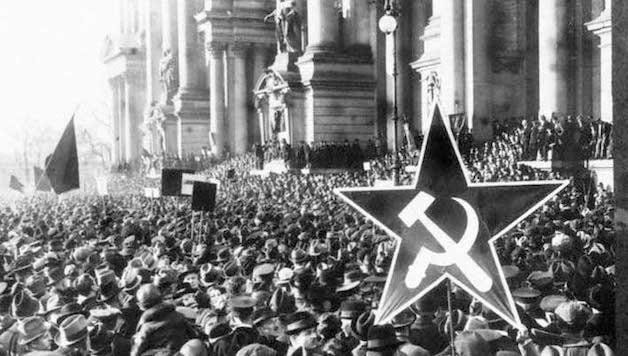
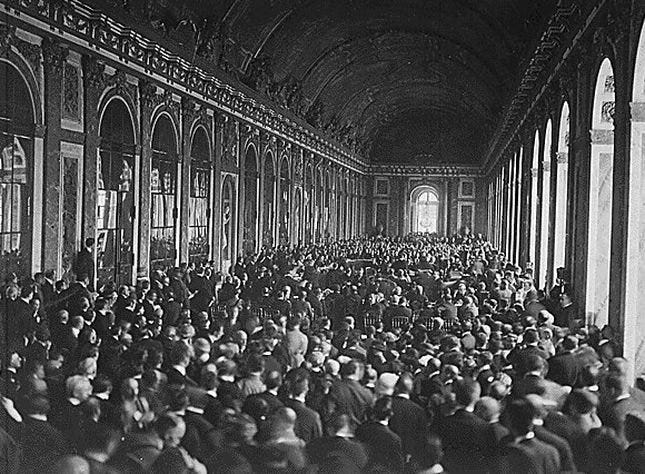

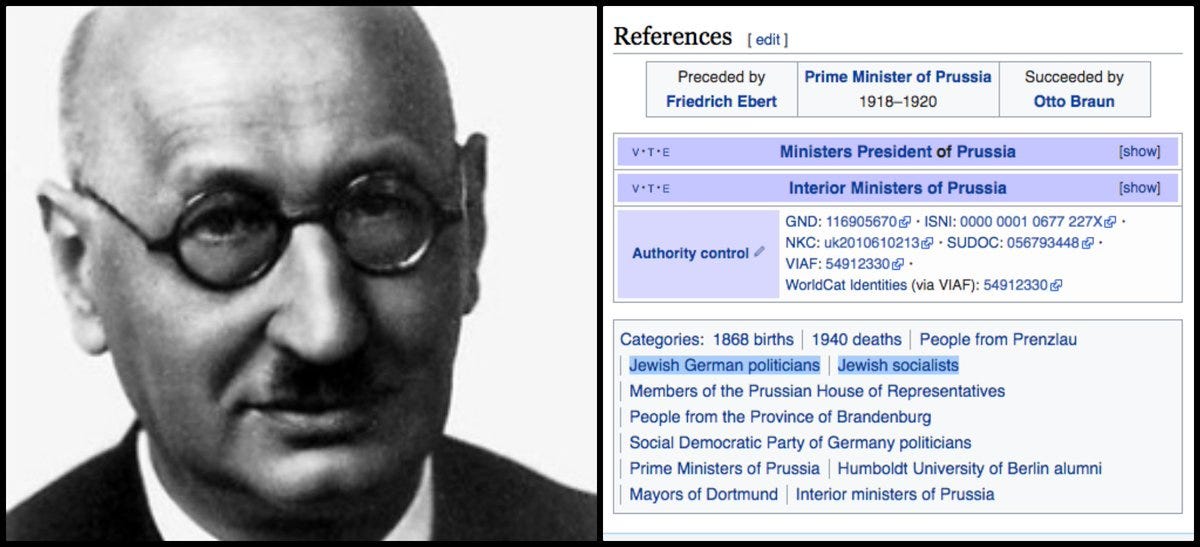
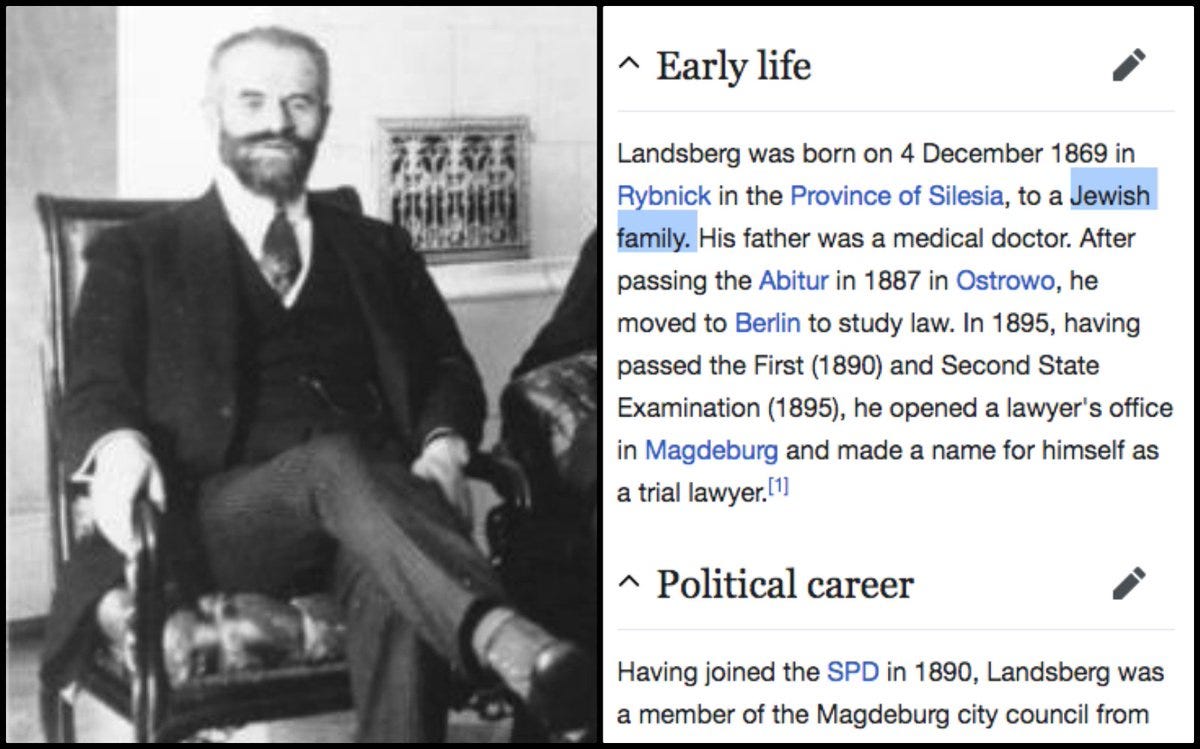

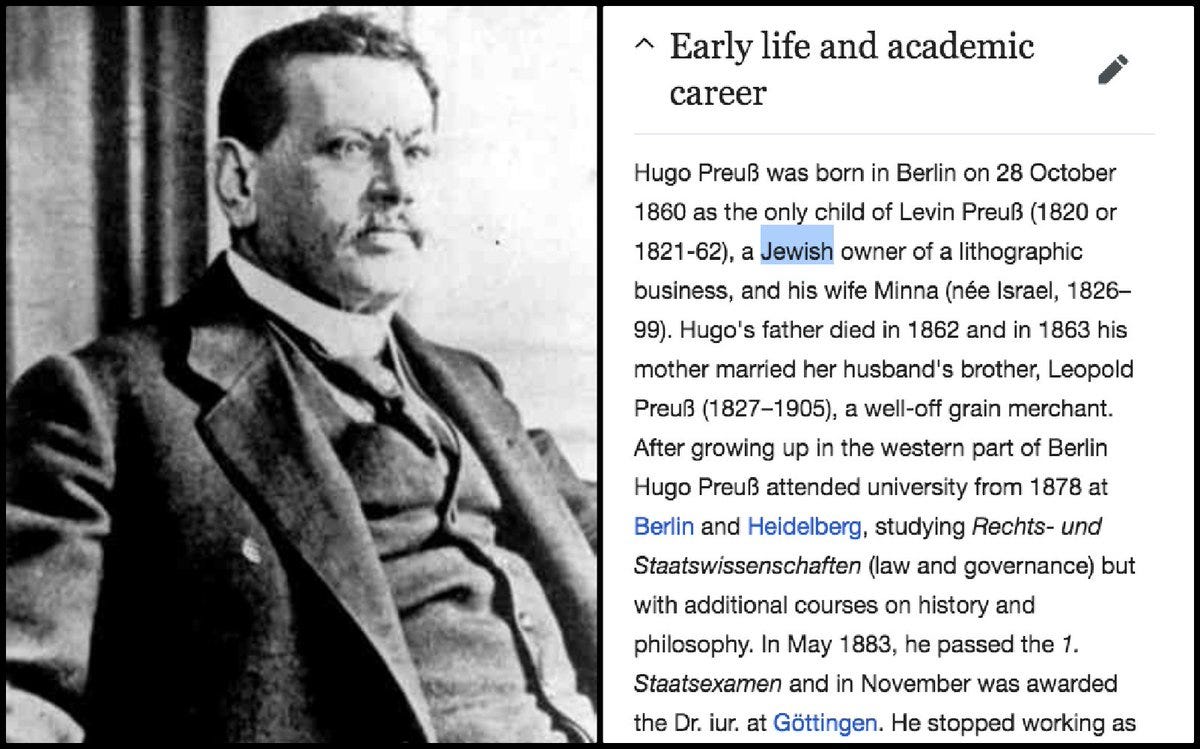
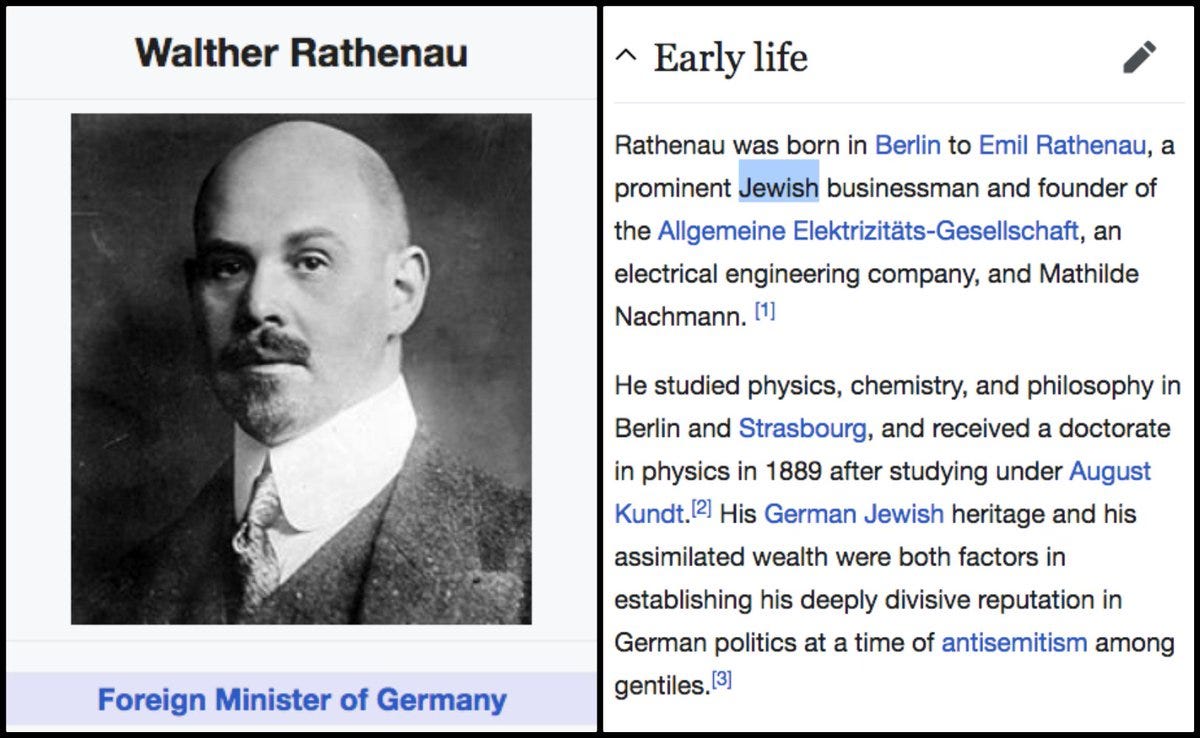

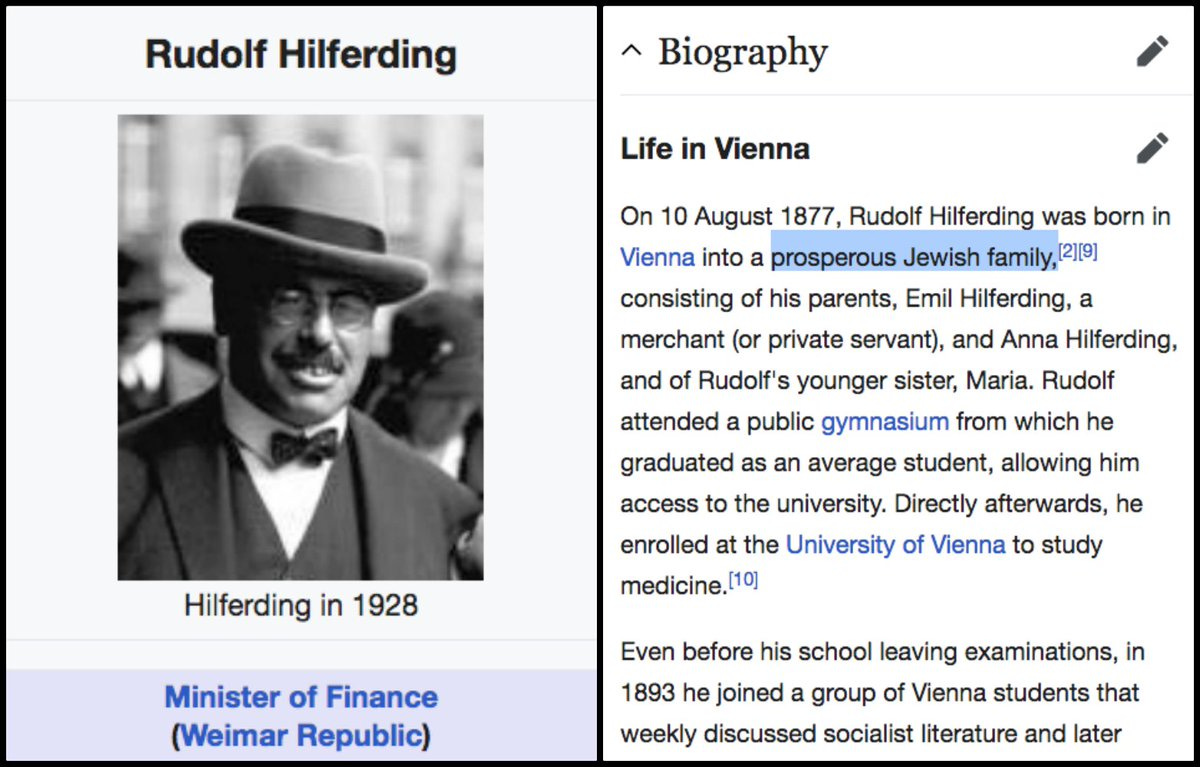

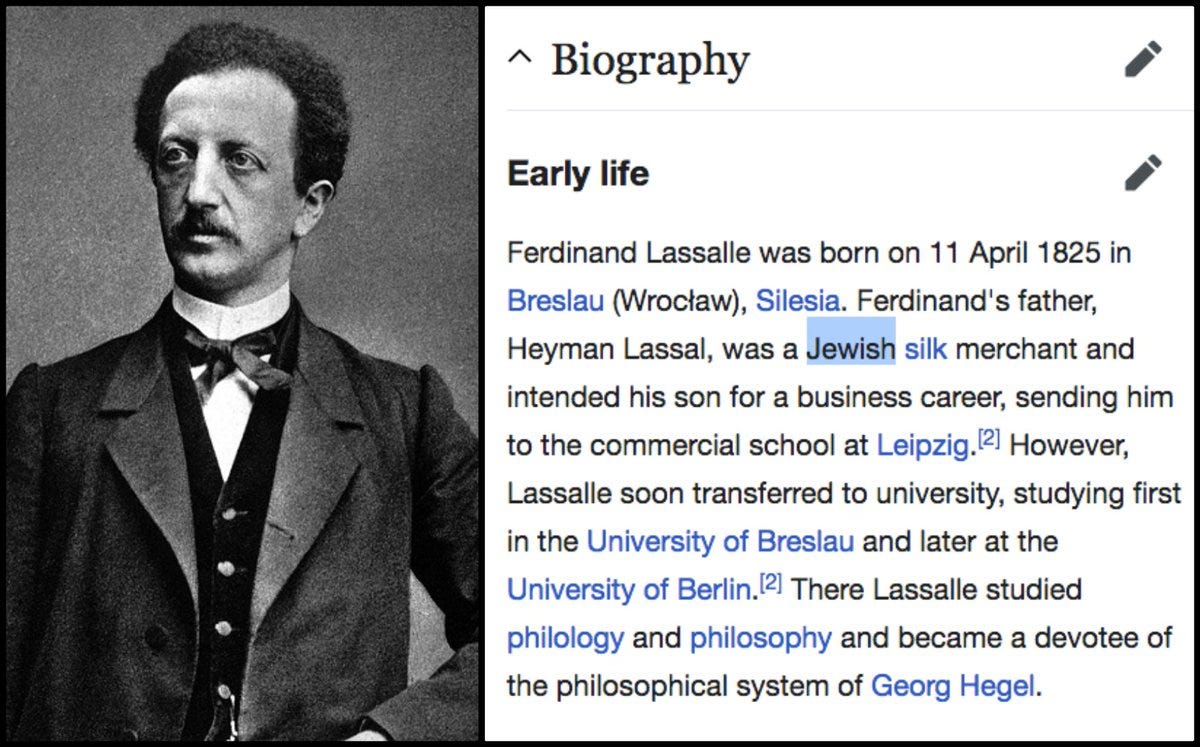
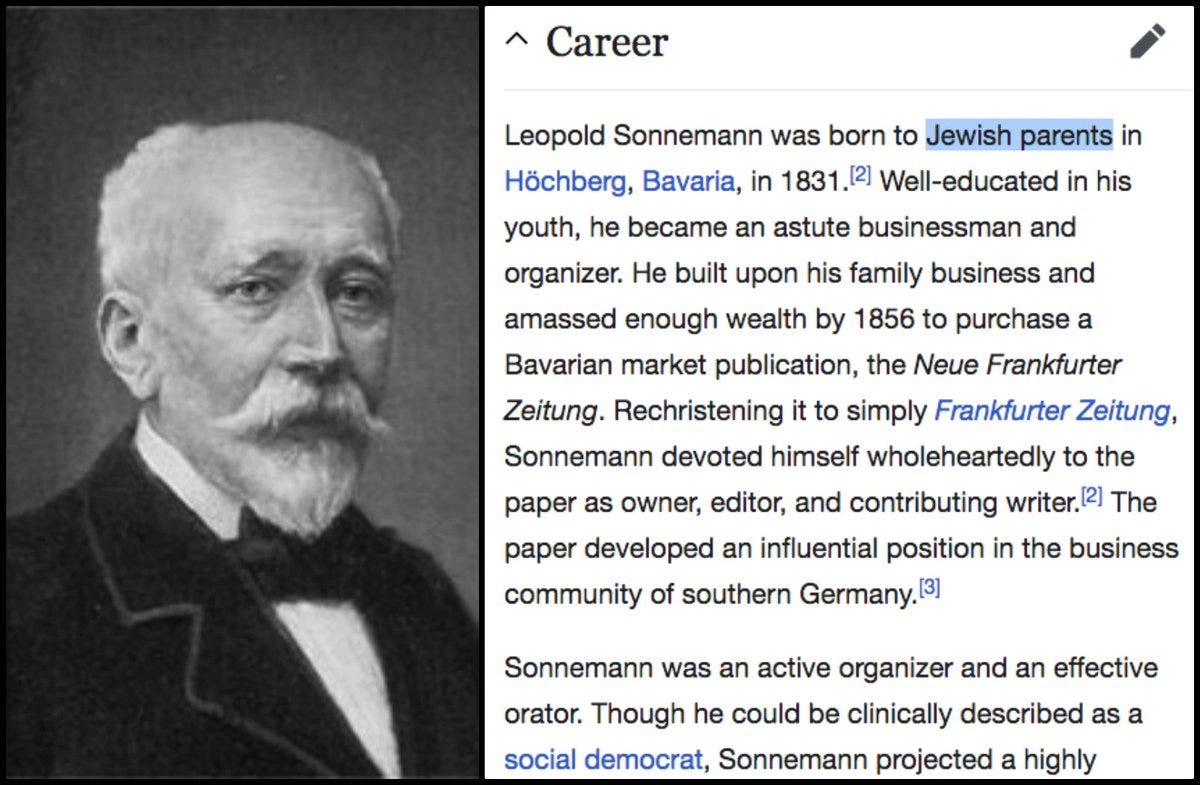
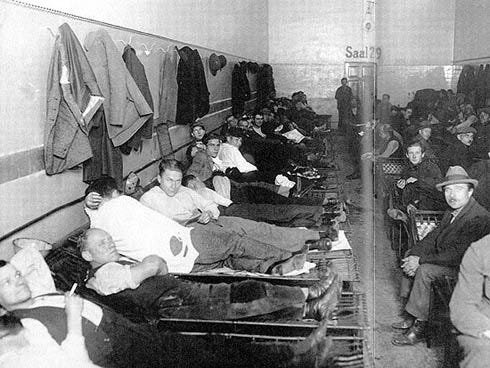



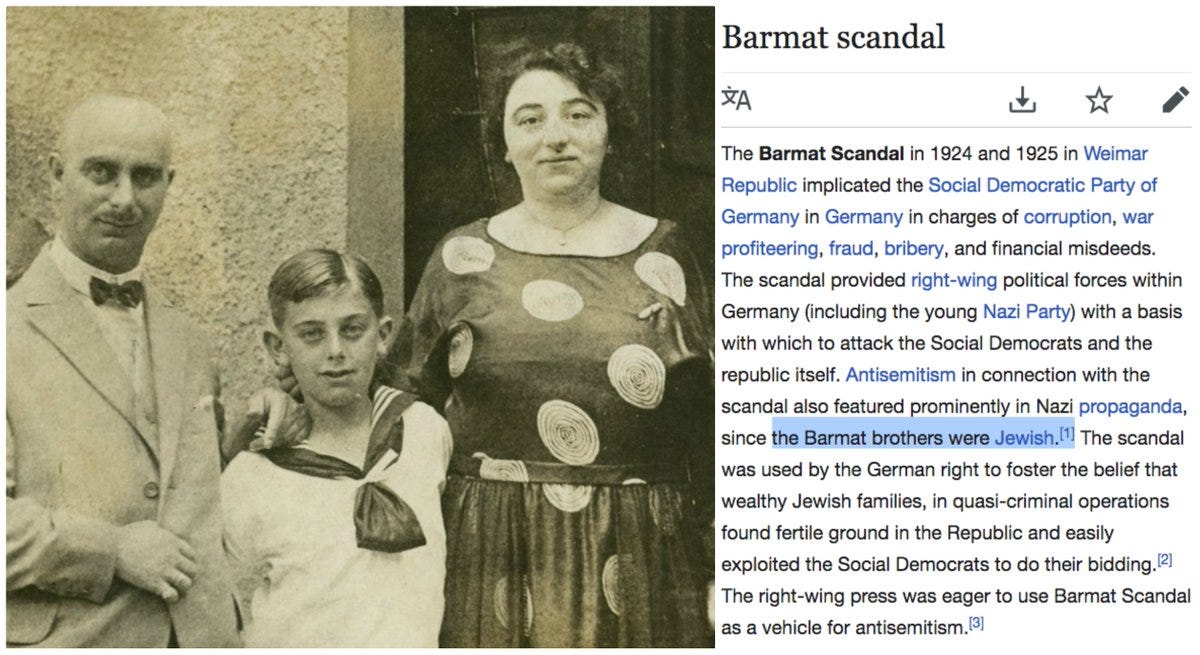
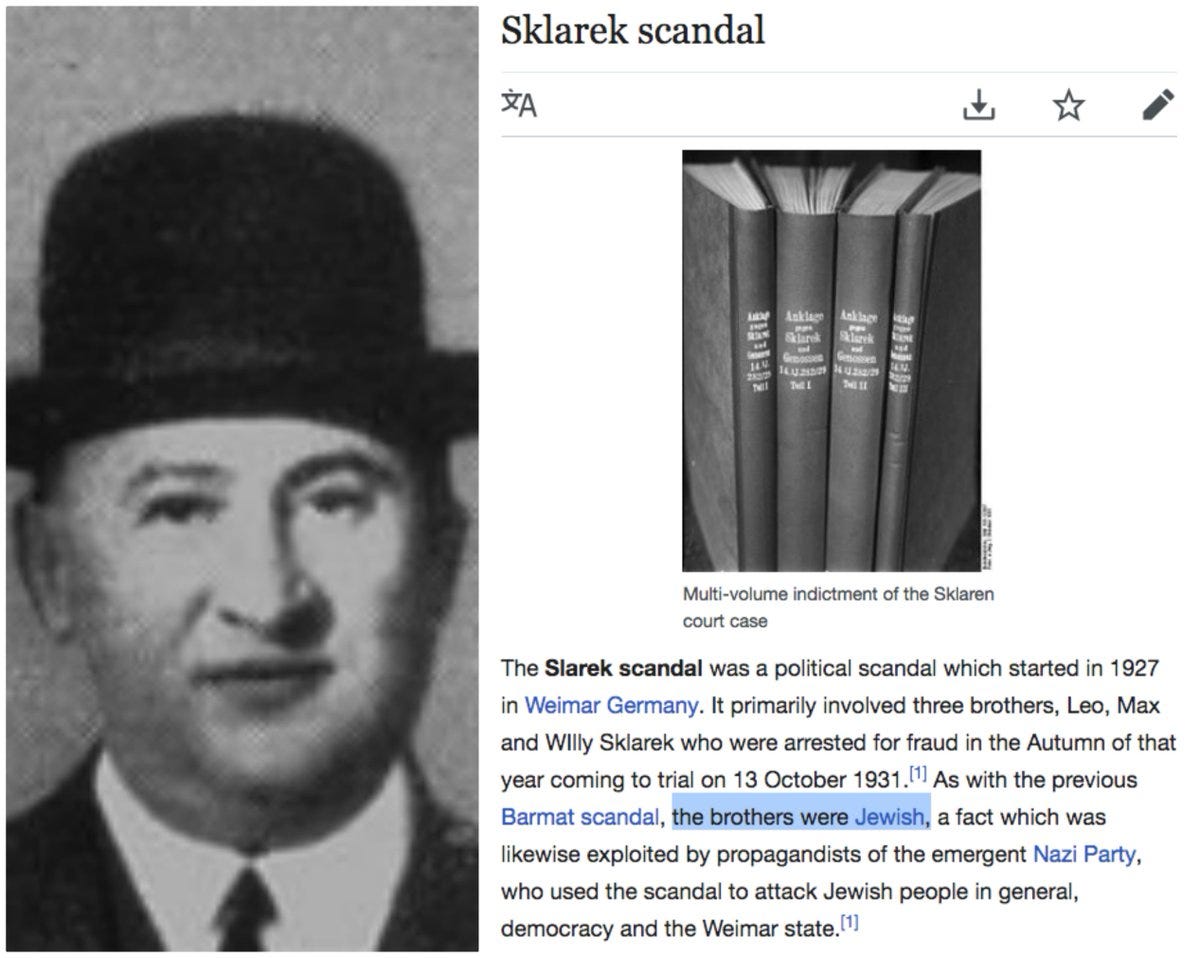
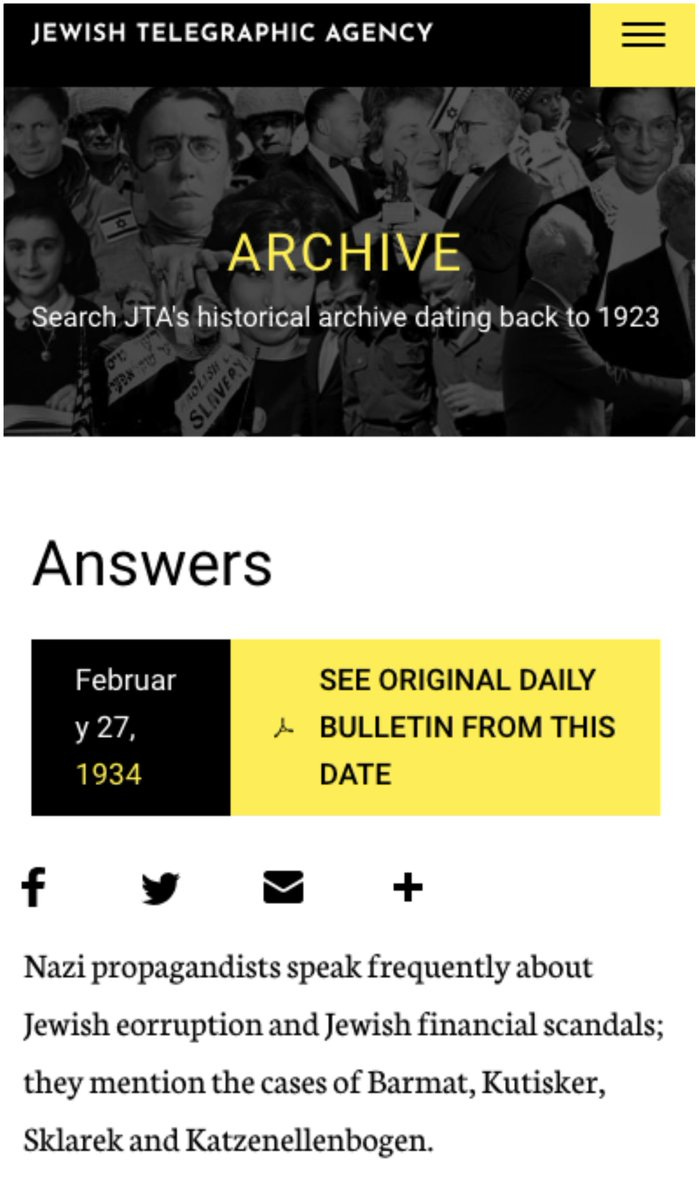

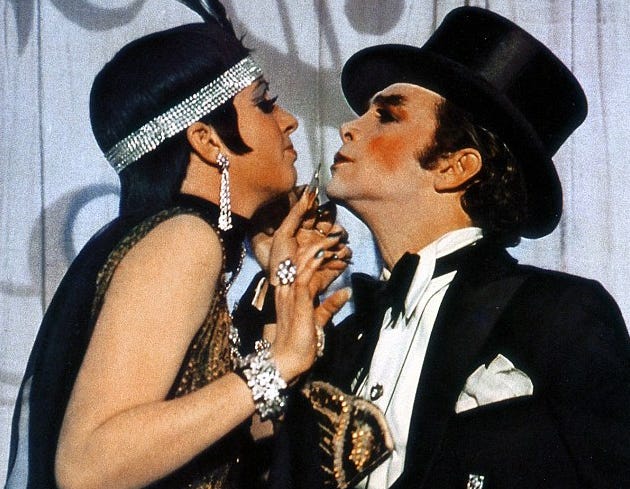


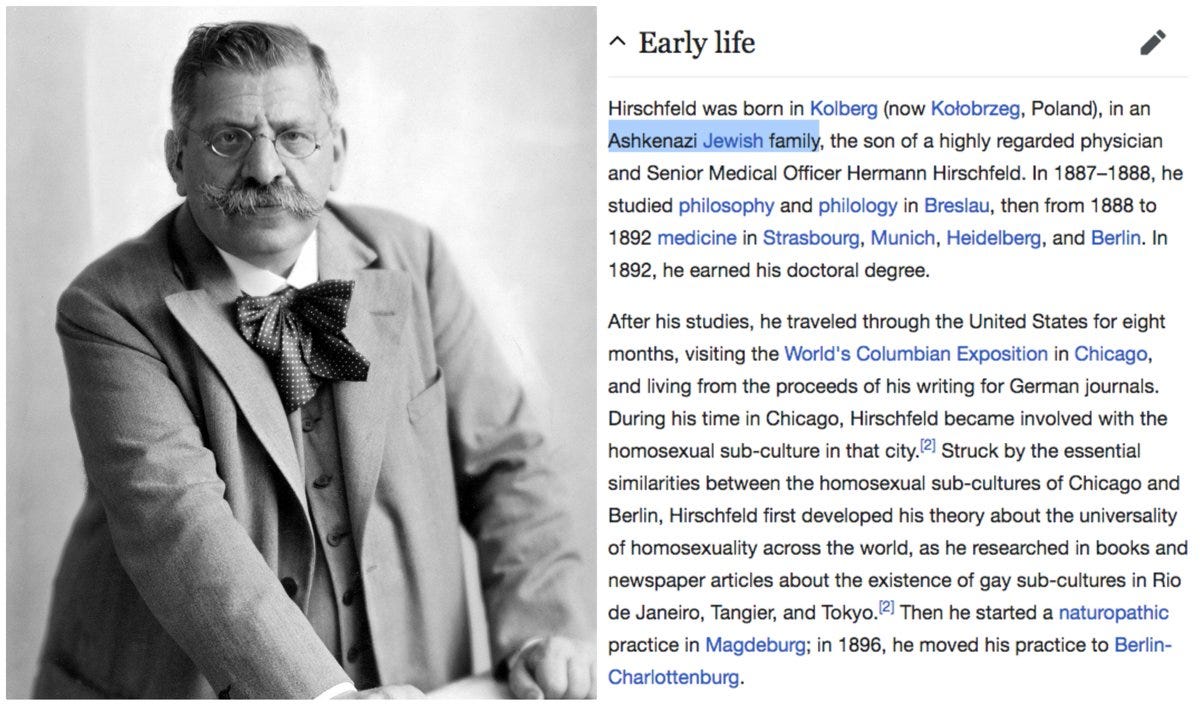




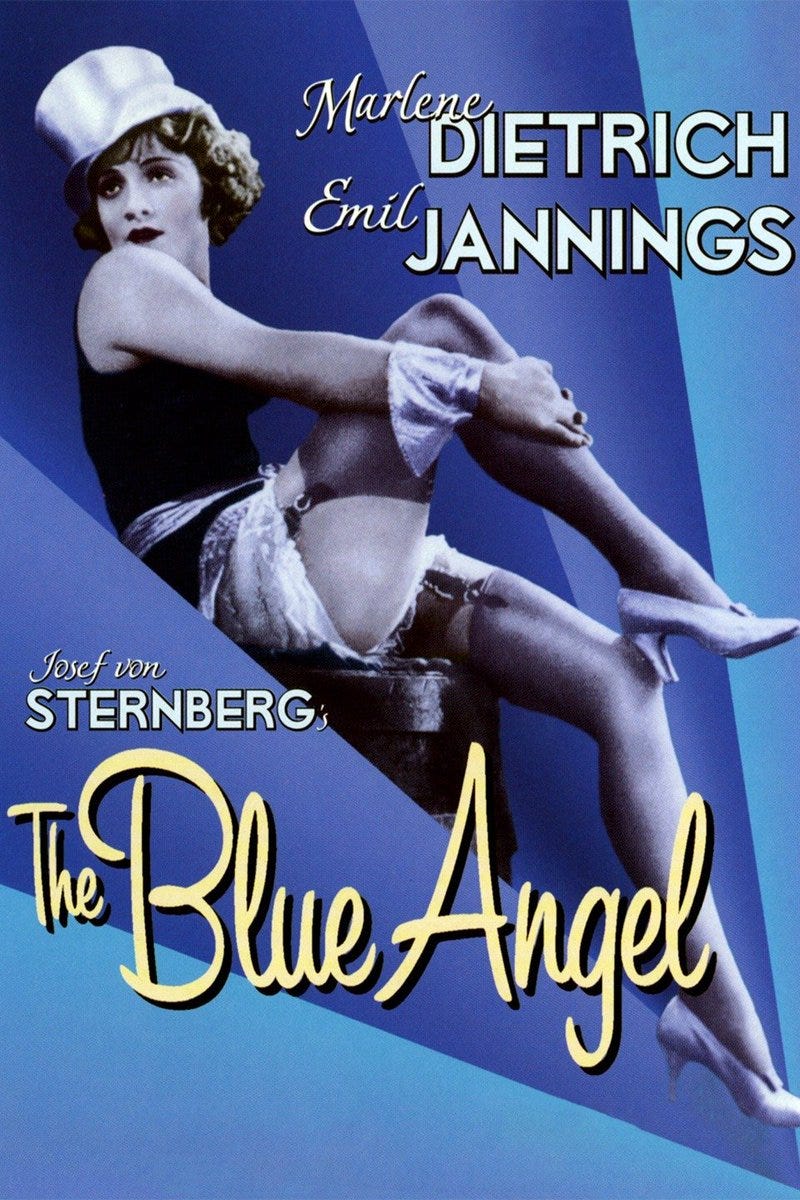
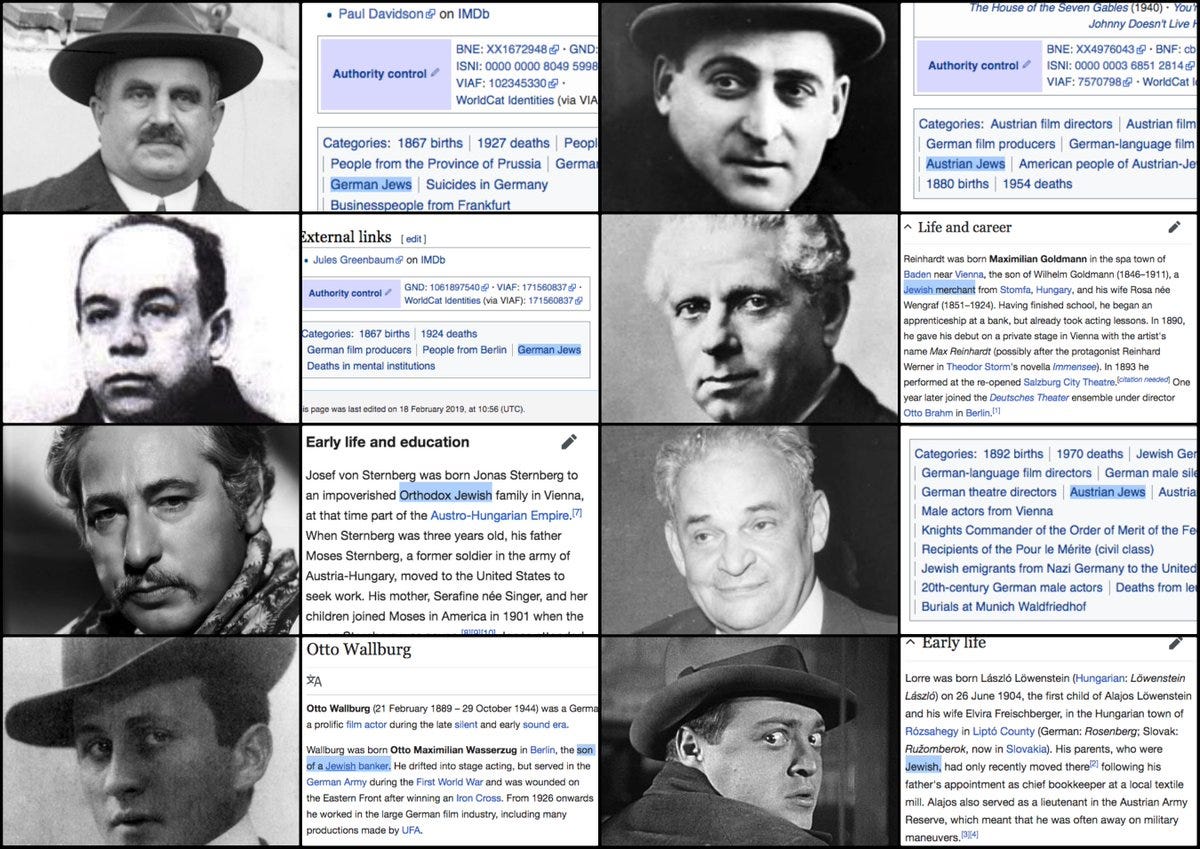
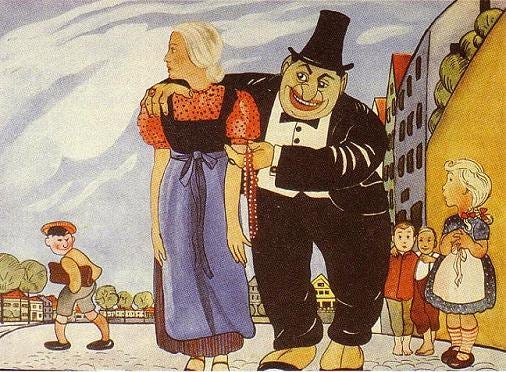


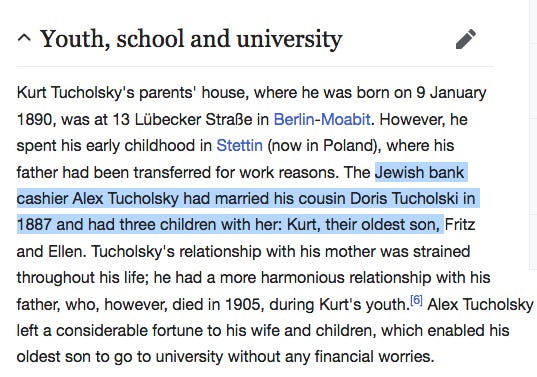
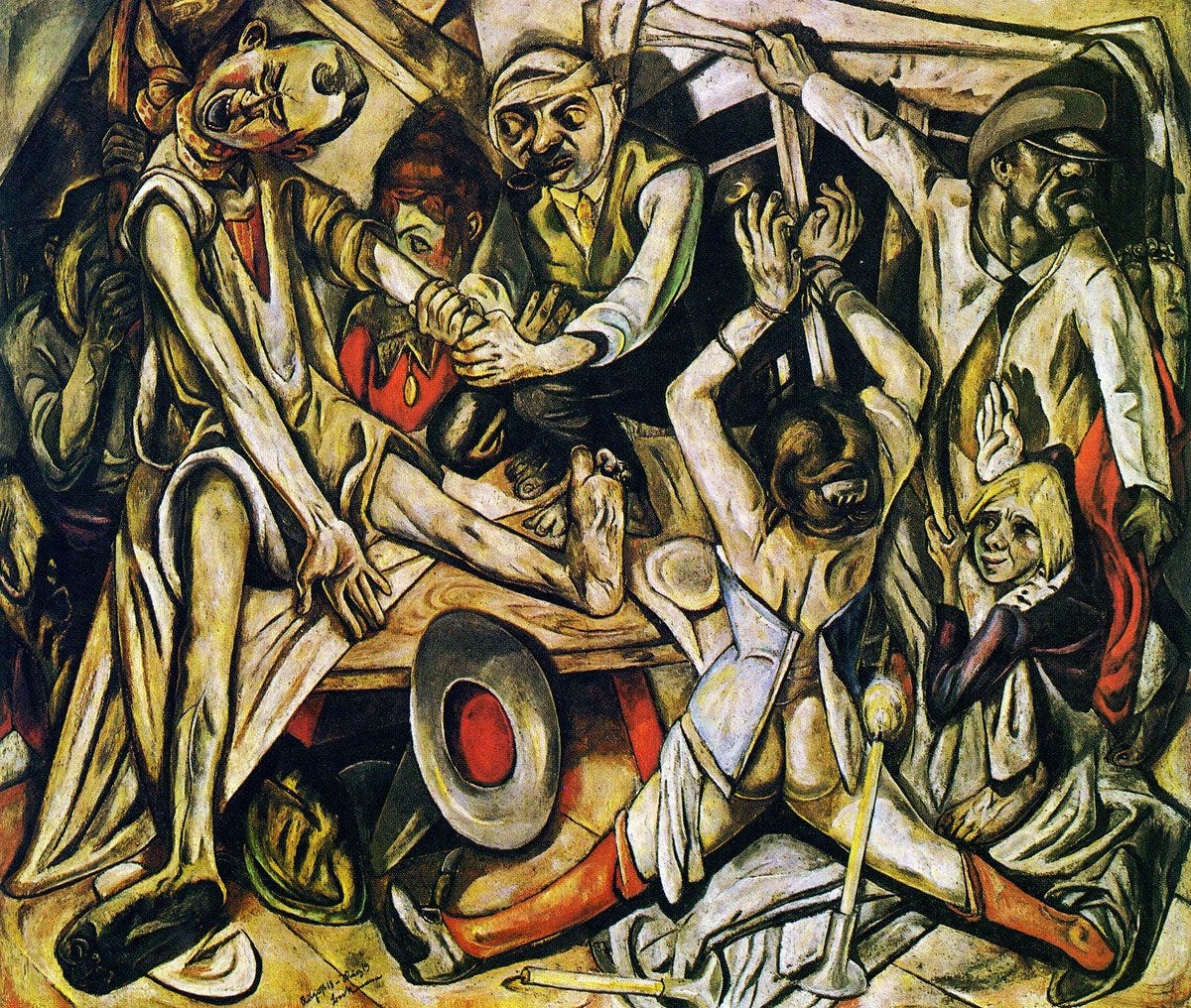


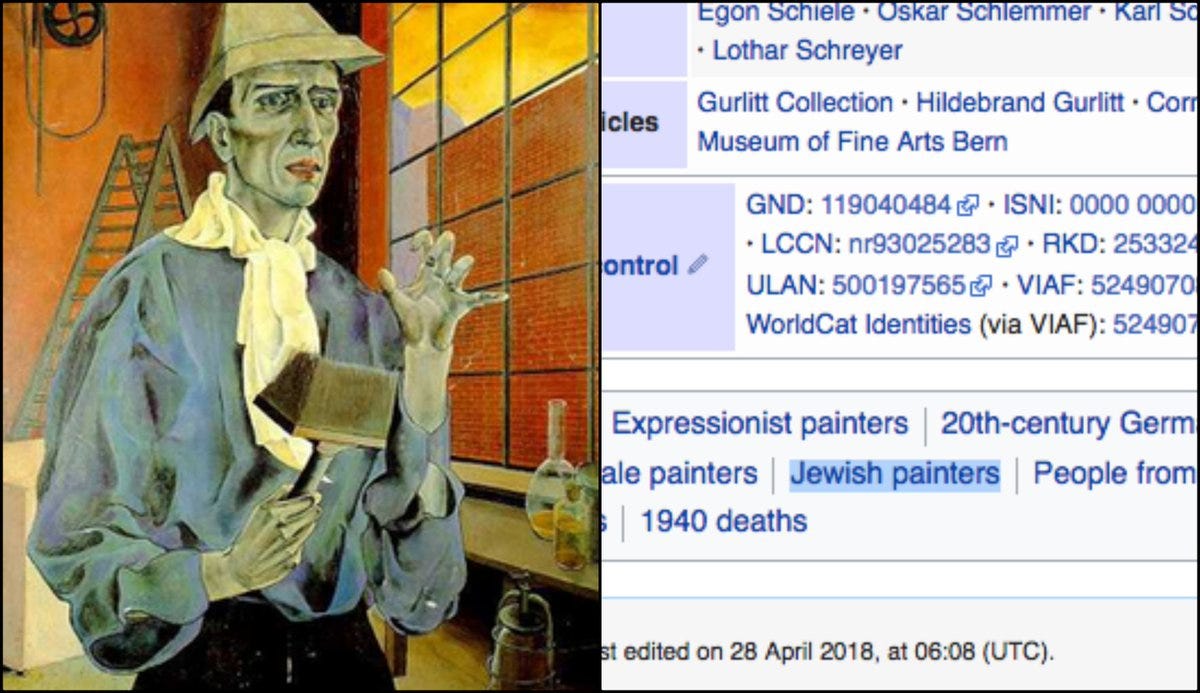



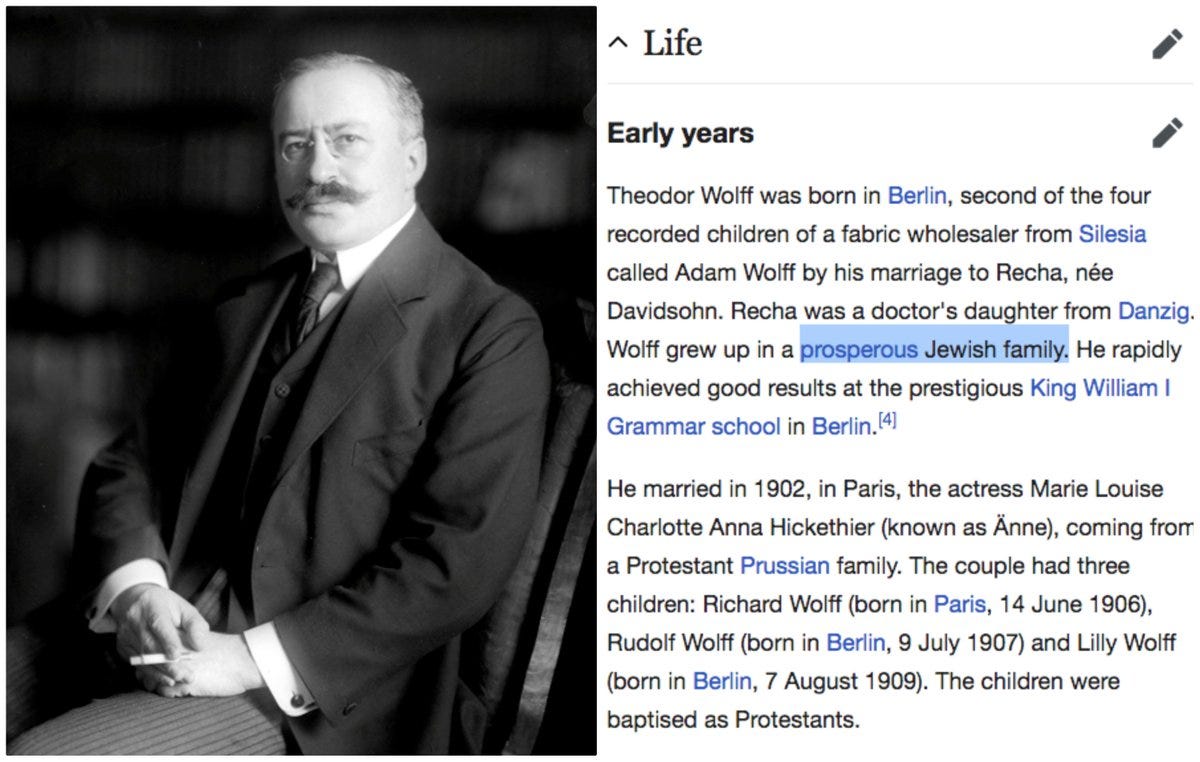
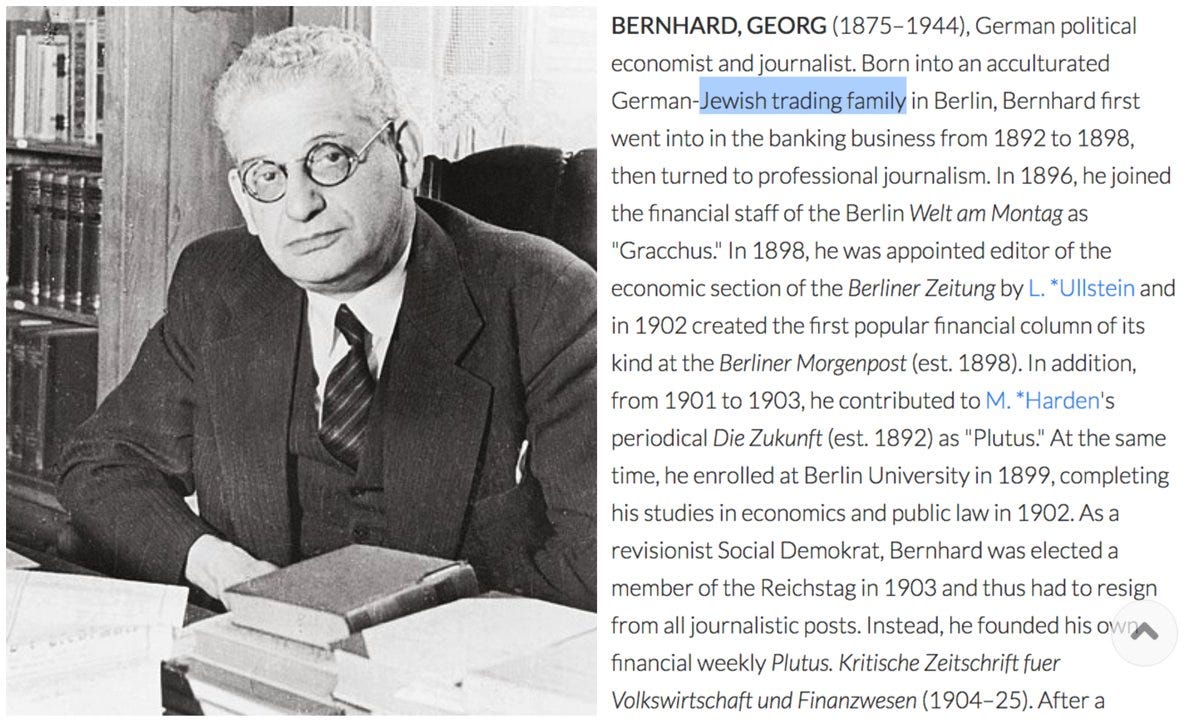
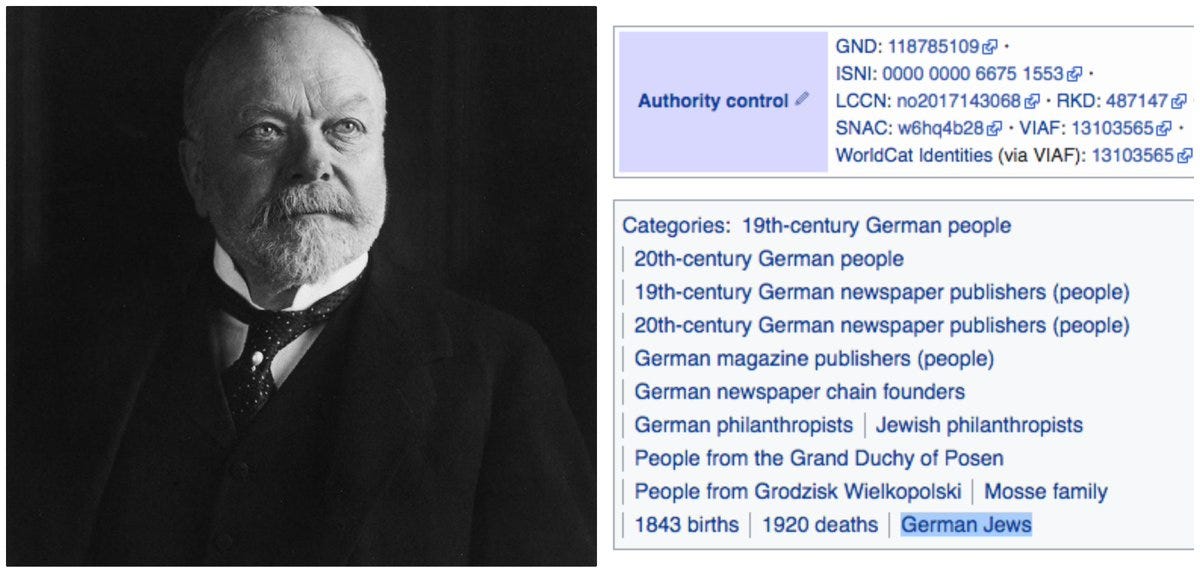



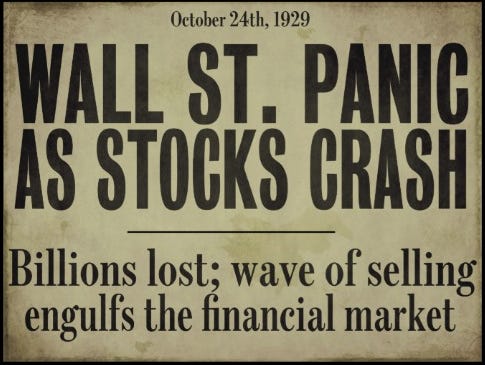


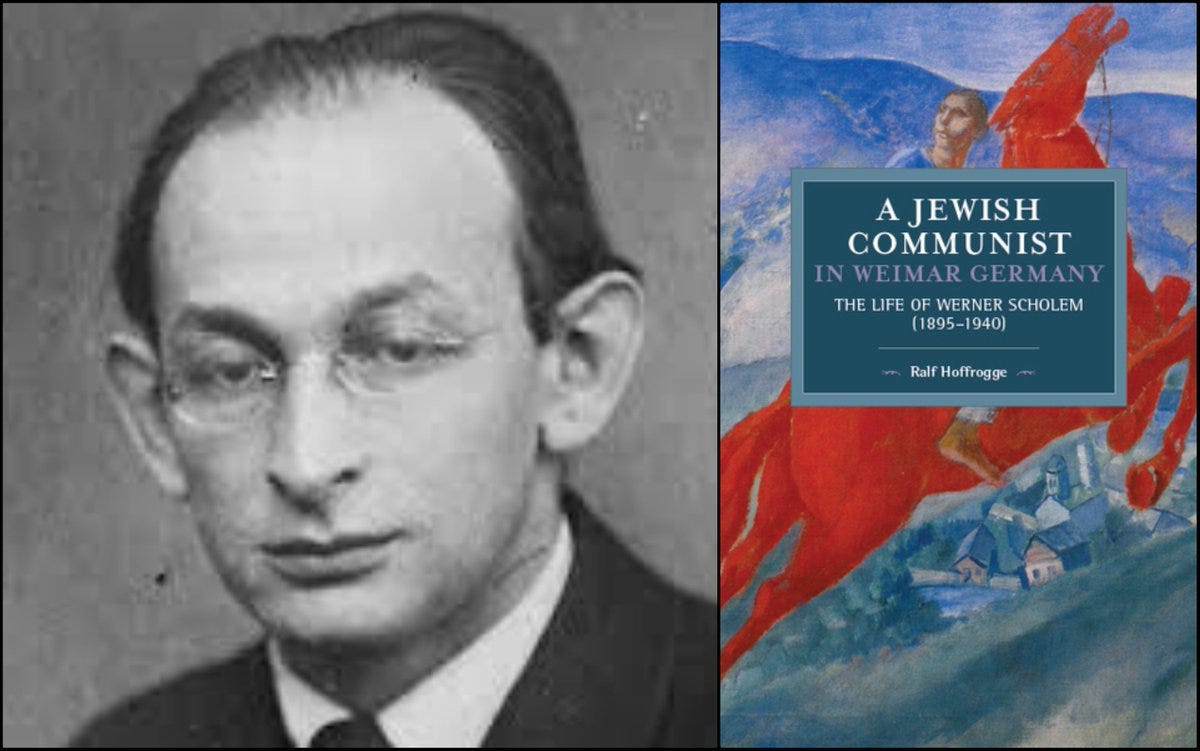
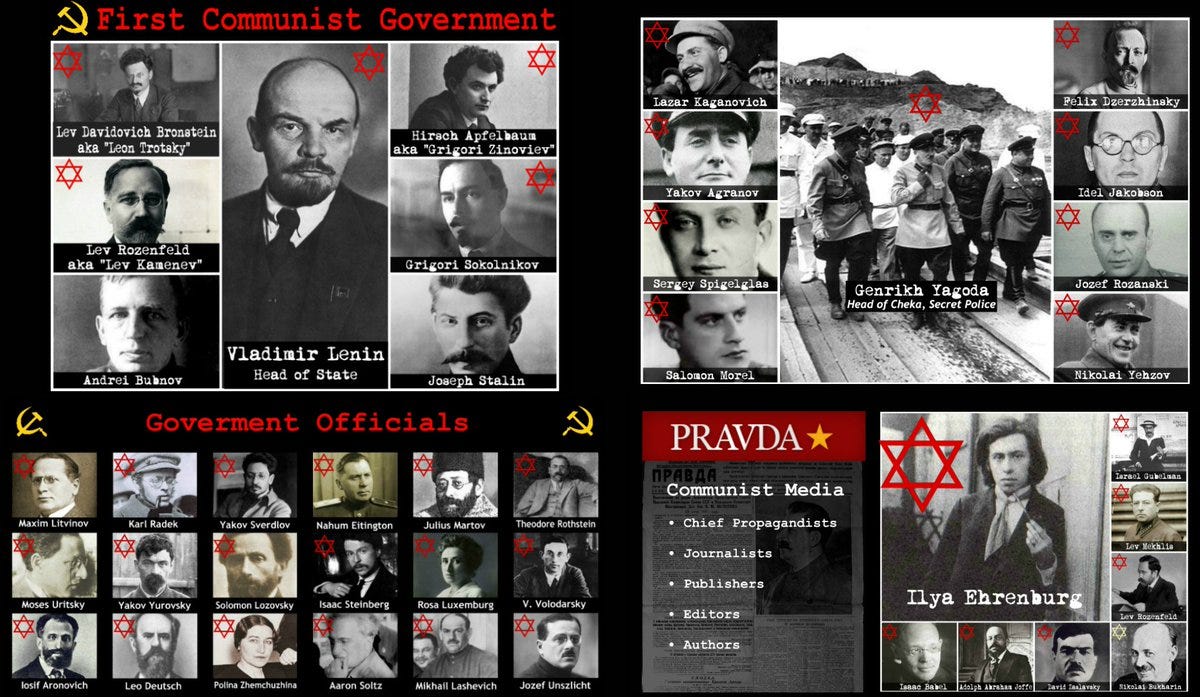

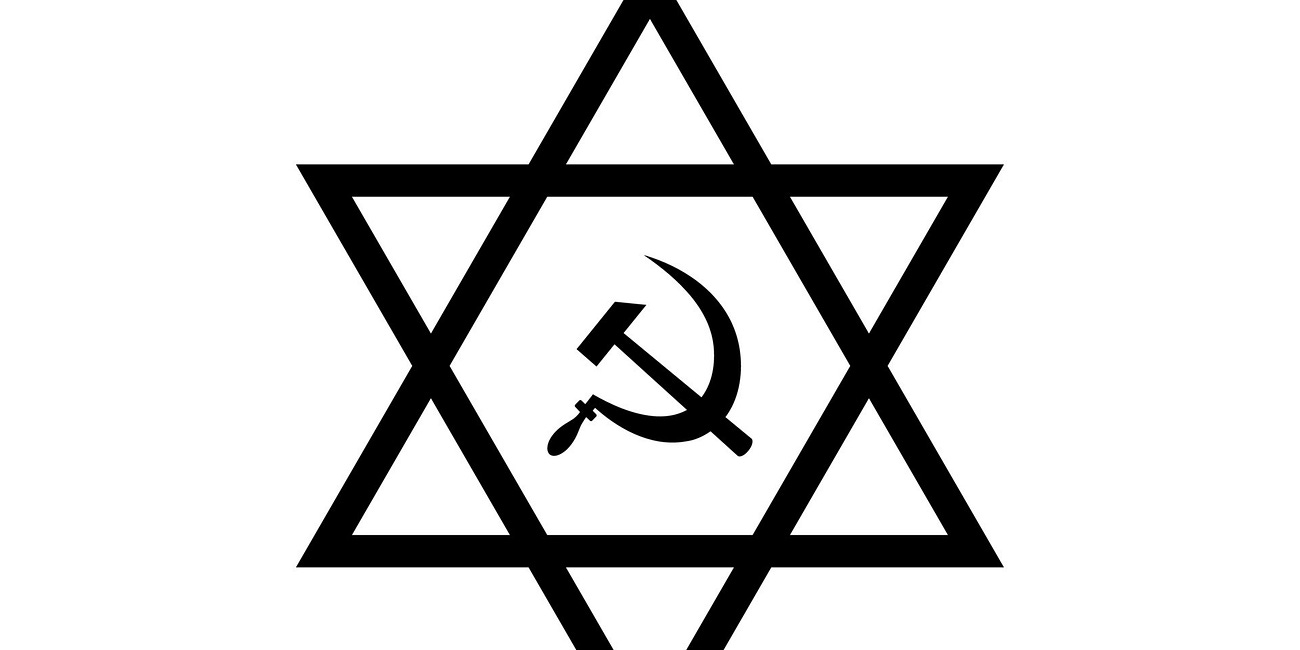


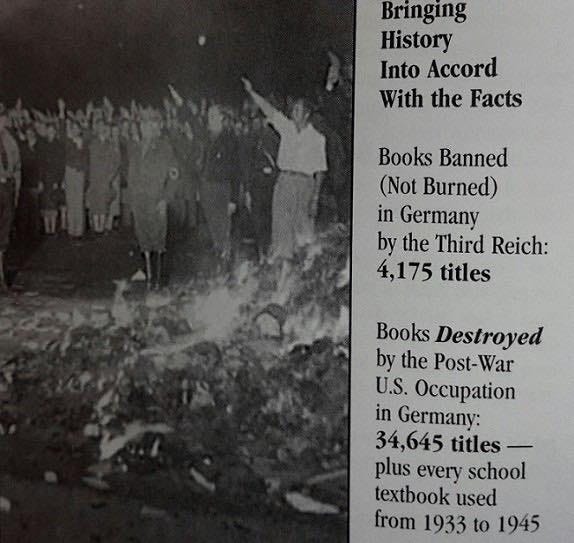


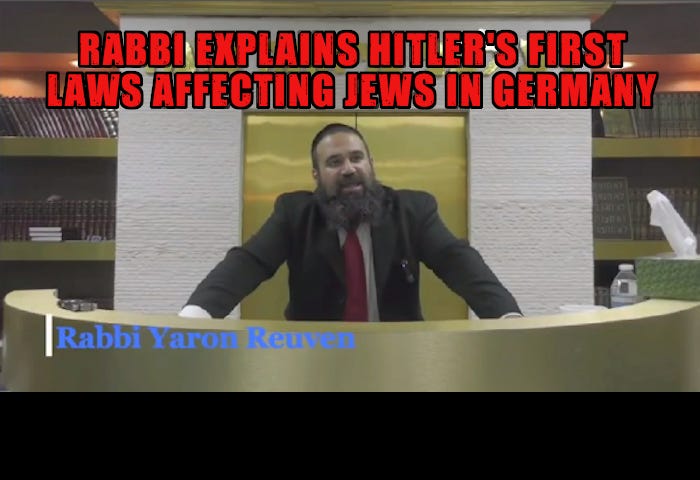

• Adolf Hitler - The Lies Won't Always Hide The Truth - RonP1
https://odysee.com/@RonP1:8/a-tribute-to-adolf-hitler-the-lies-wont-always-(1):e
Comment by RonP1:
"As an instance of what can be accomplished by means of Press-control, we may instance the fact that Litvinoff, a criminal Jew who represented the Jewish Soviet of Russia, whose officials murdered the Tsar and his family, and who are responsible for about twenty million deaths of Russian Gentiles, can walk in the funeral procession of our beloved late King George V. because "public opinion" has been guided by the Jew-controlled Press to regard the Bolshevik murders with complacency. In the same way, Britain is being gradually prepared, by constant misrepresentation of facts, to look upon the great spiritual leader of Germany, Herr Hitler, as a barbarian and a madman, in the hope that this country may be used once again to fight its own kith and kin in Germany so that Racial Fascism shall be destroyed."
Arnold Leese - Jewish Press Control (1930s)
Excellent work. I commend you for exposing the truth.